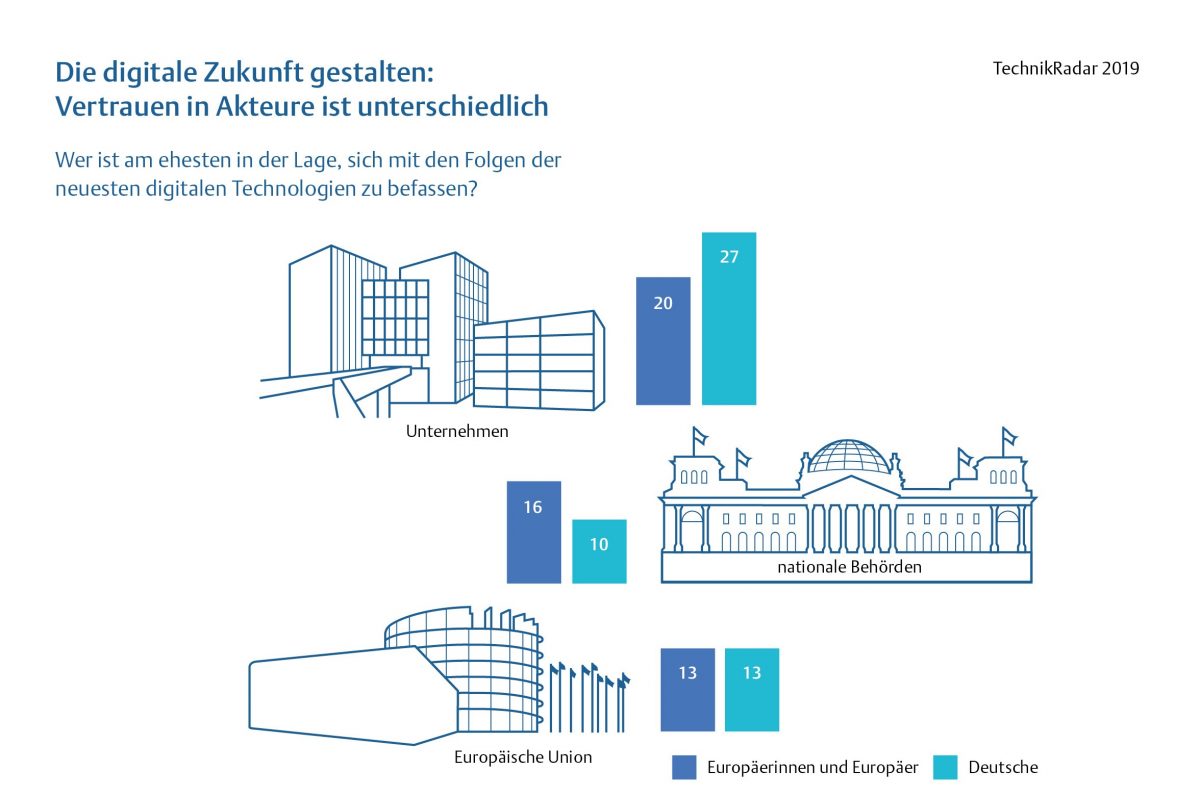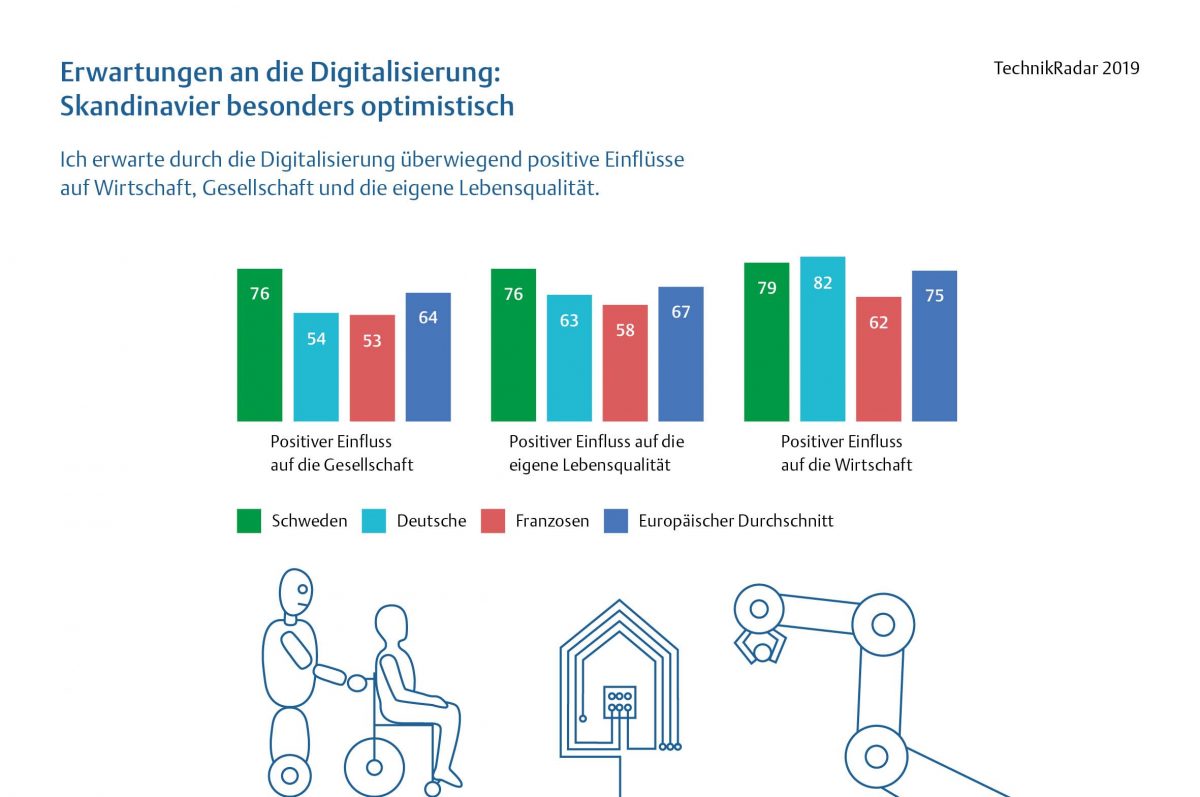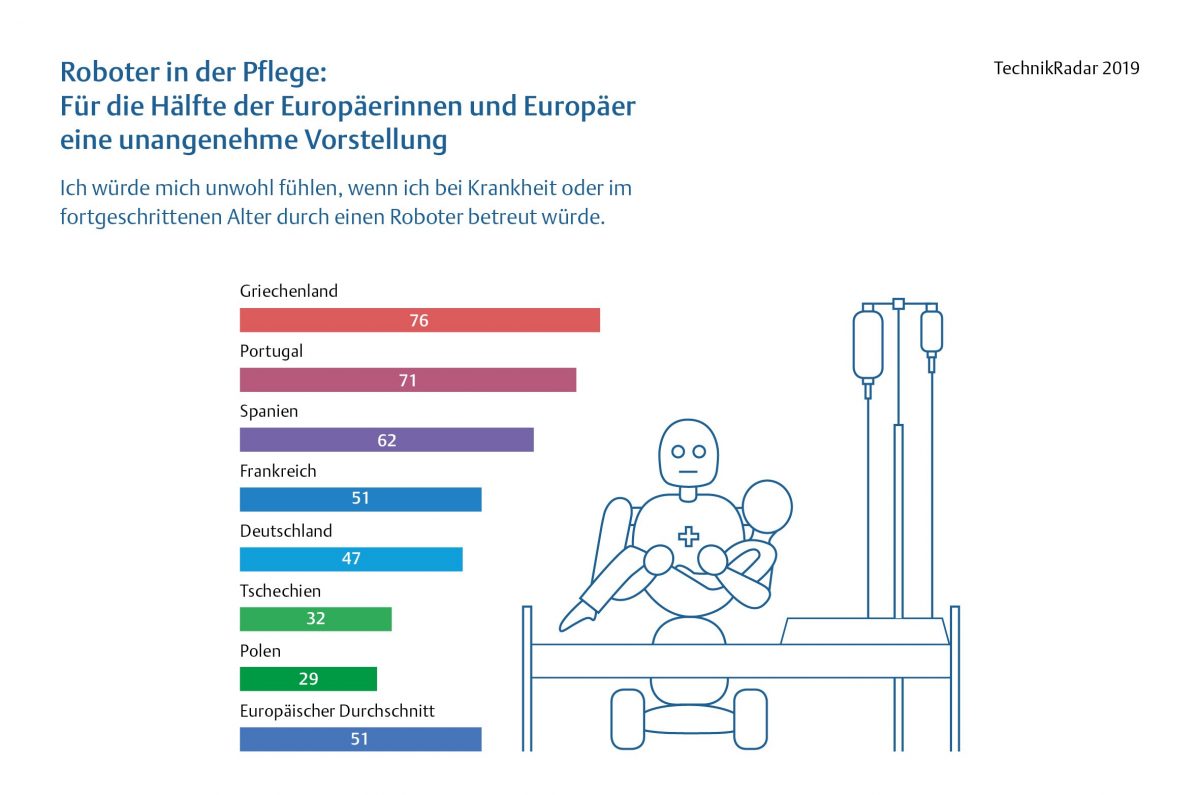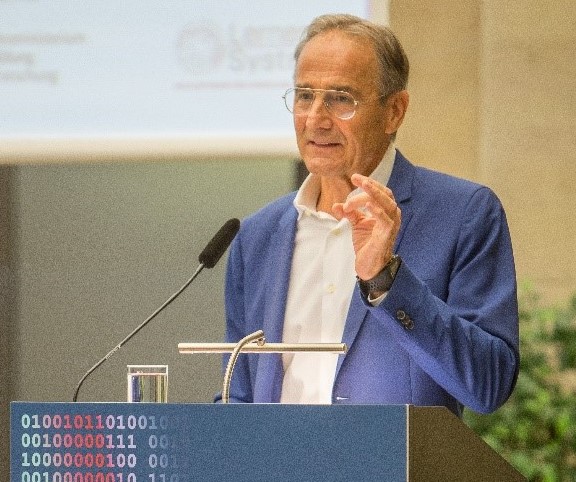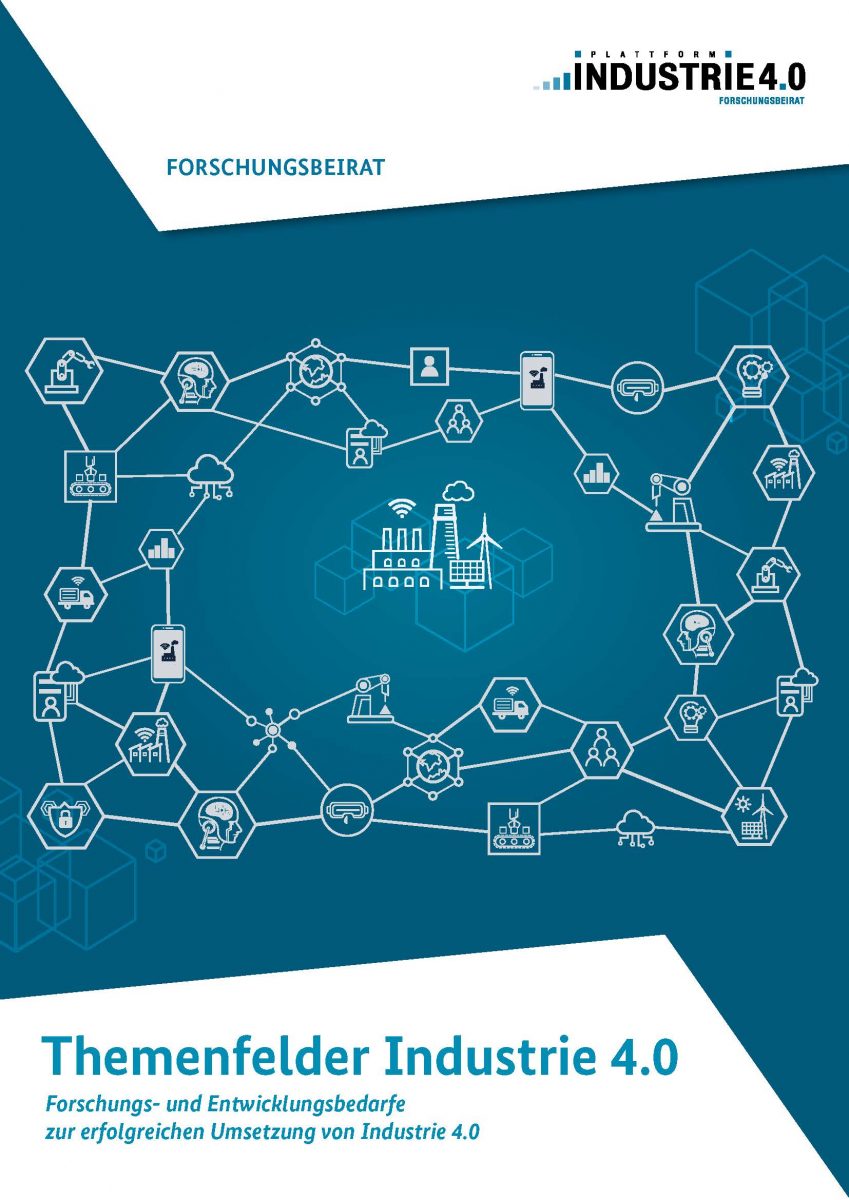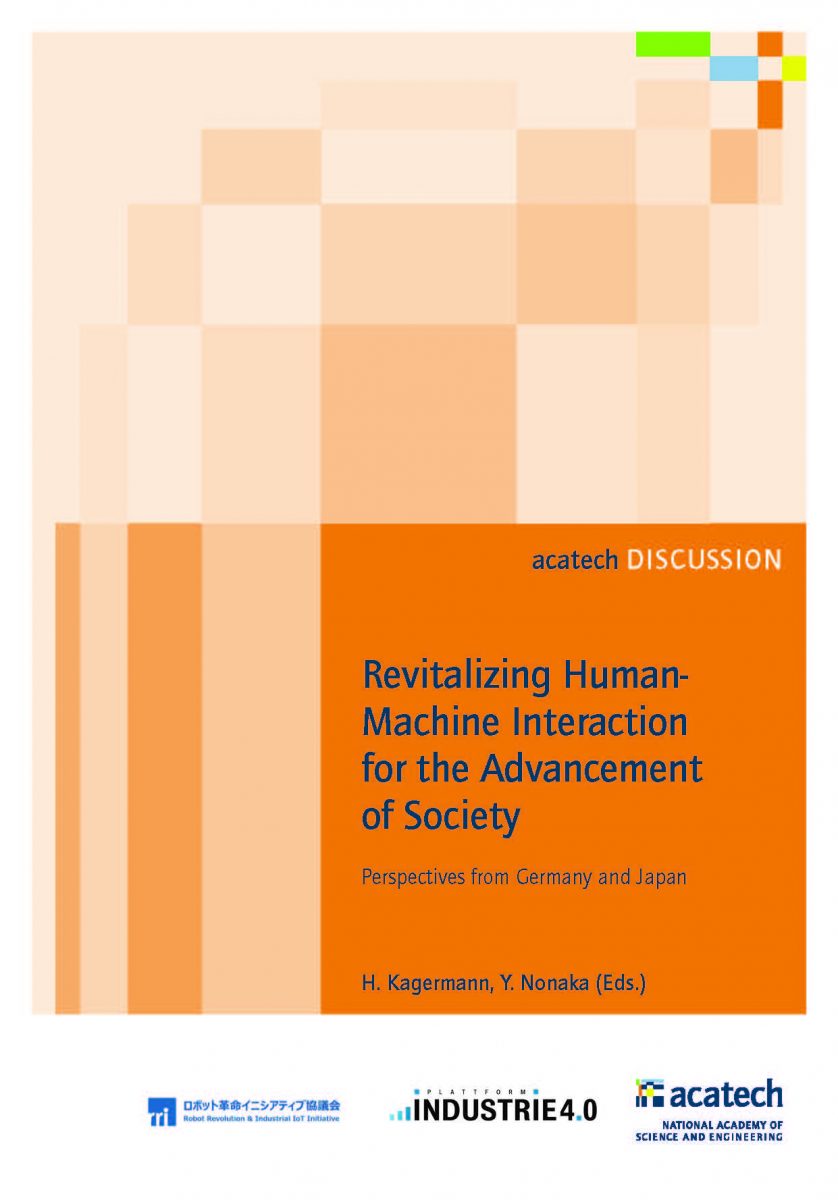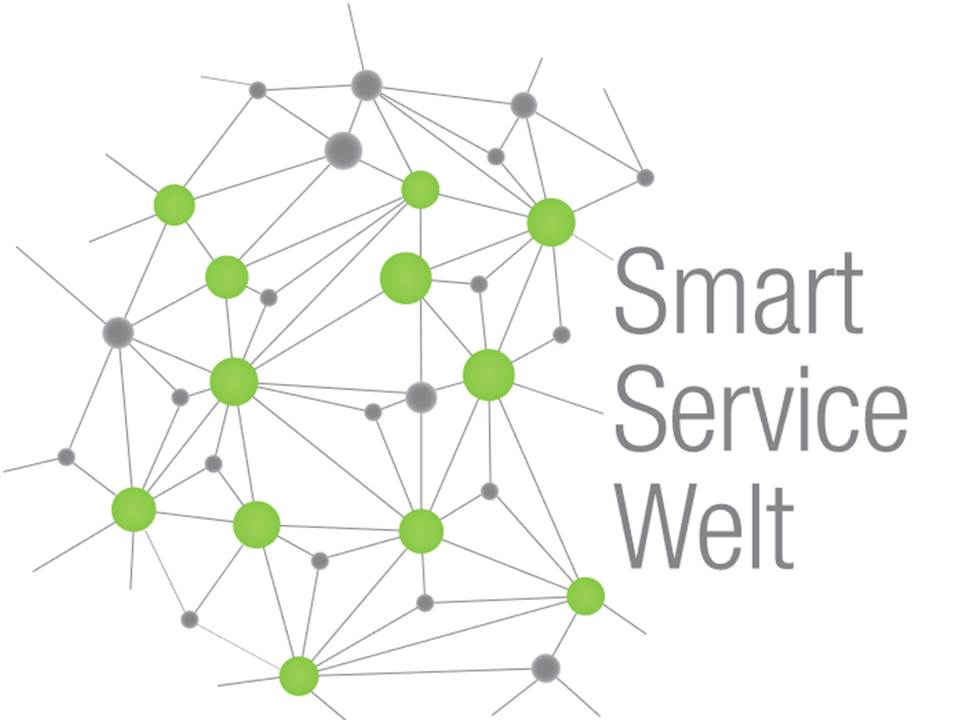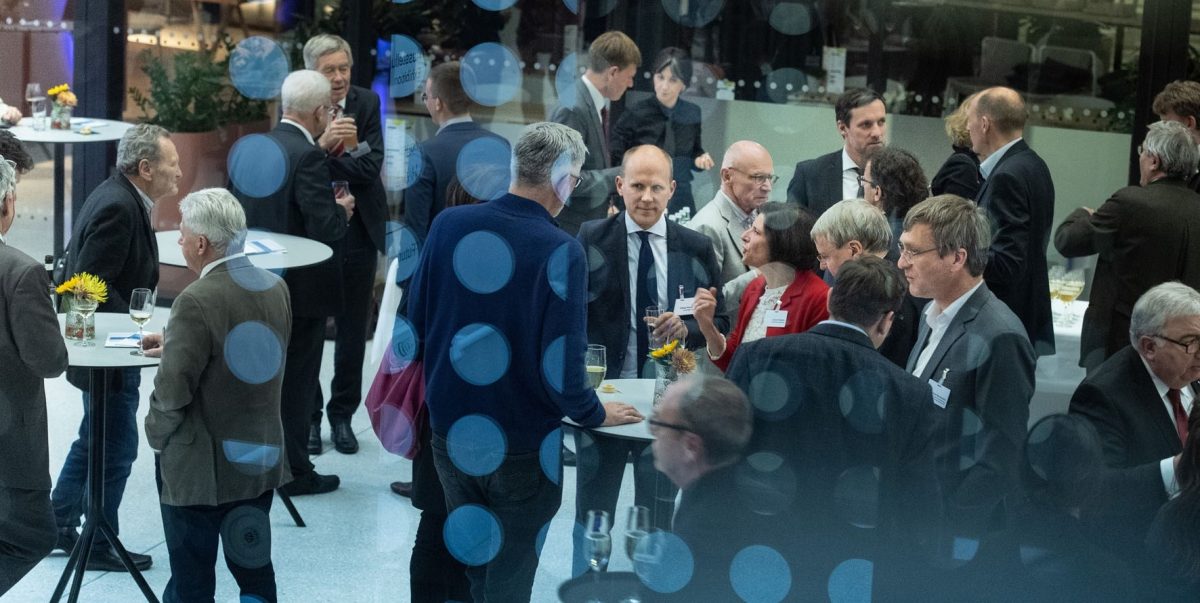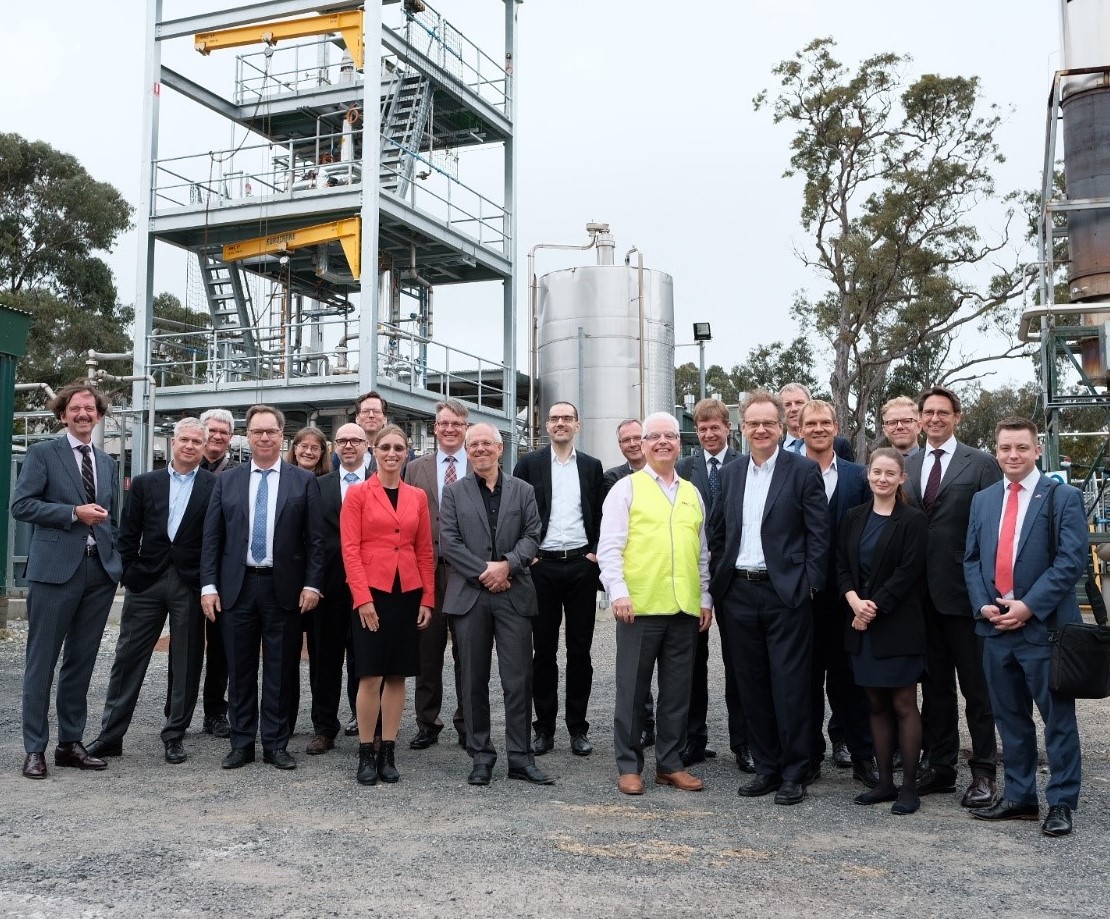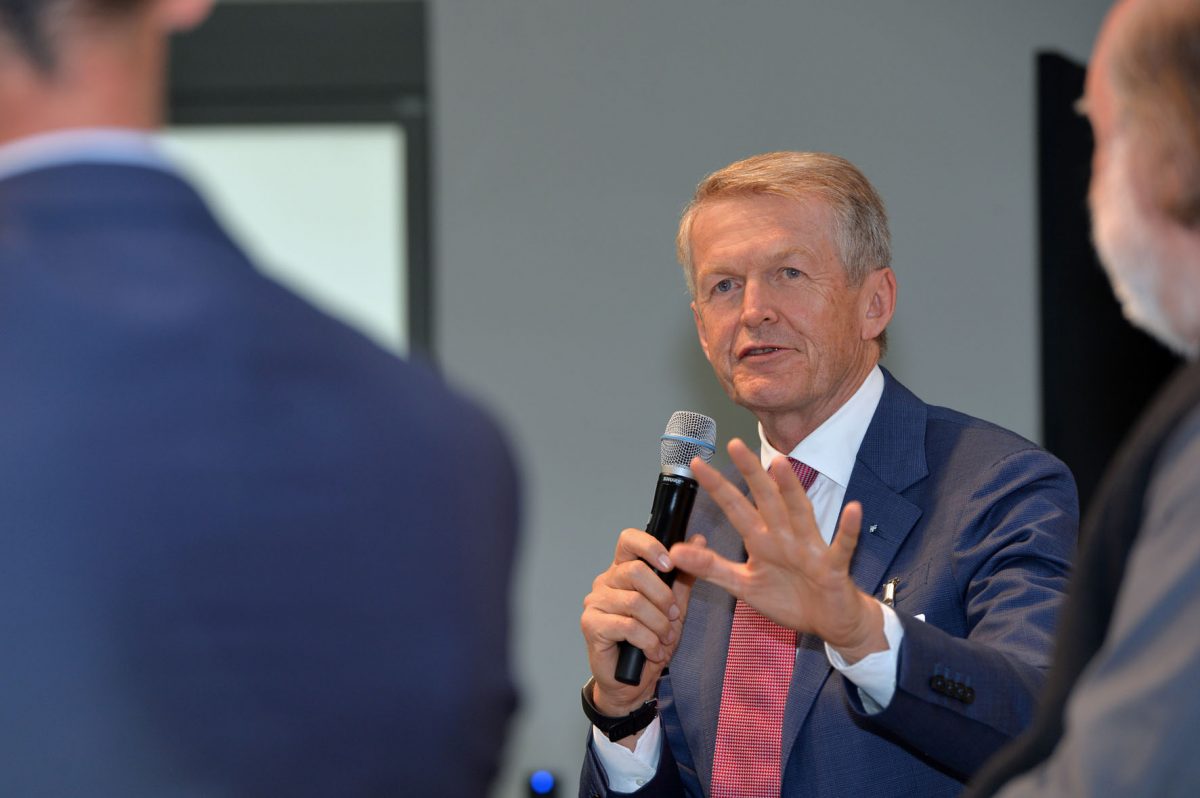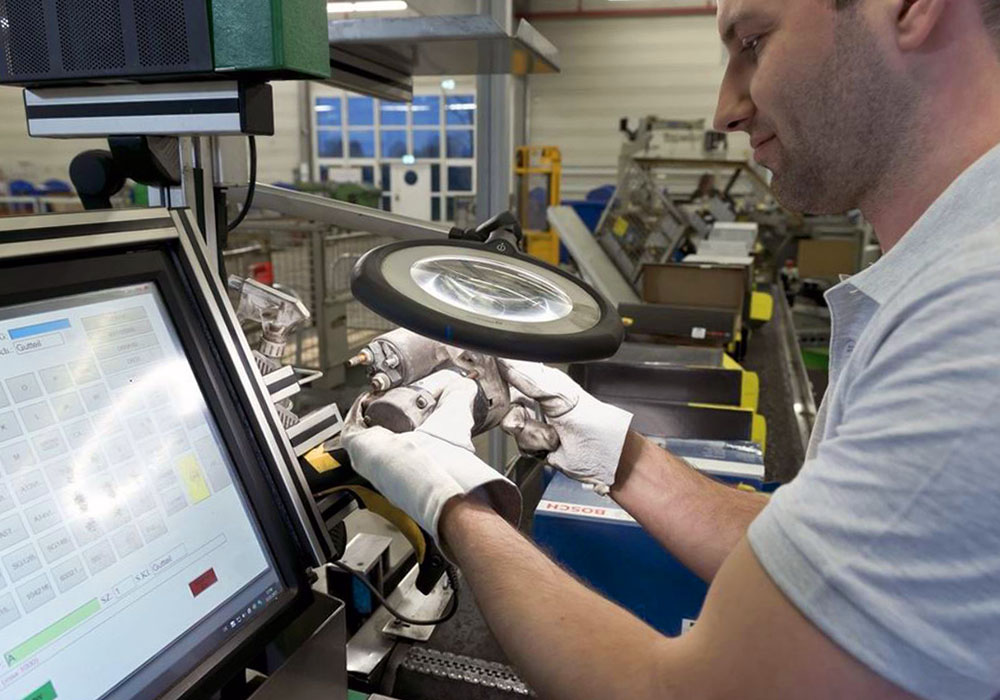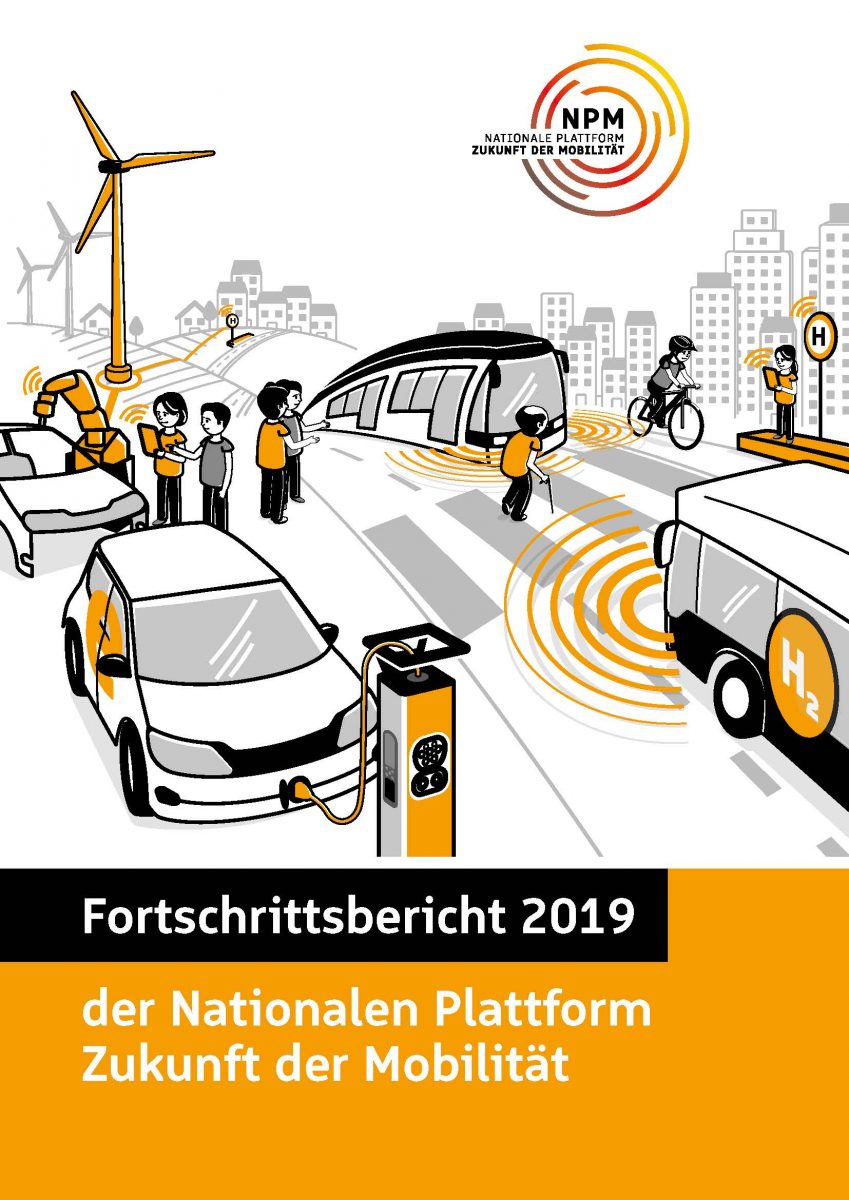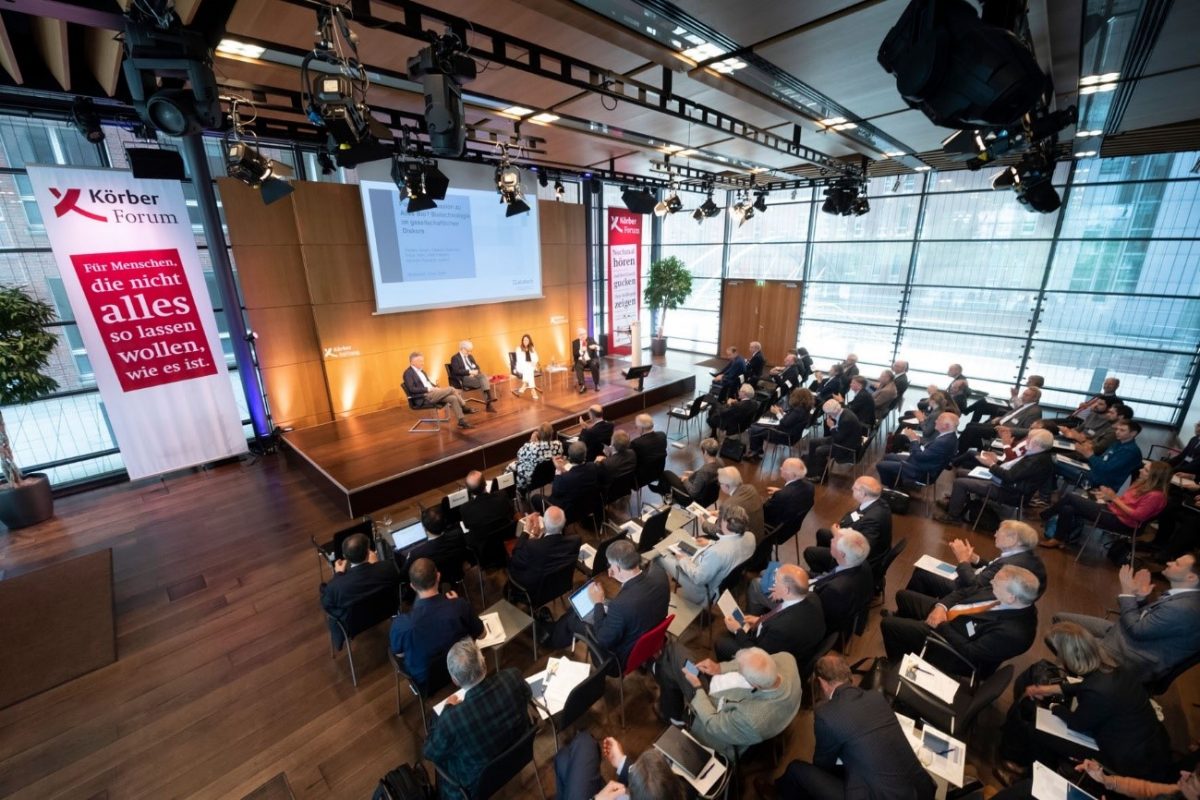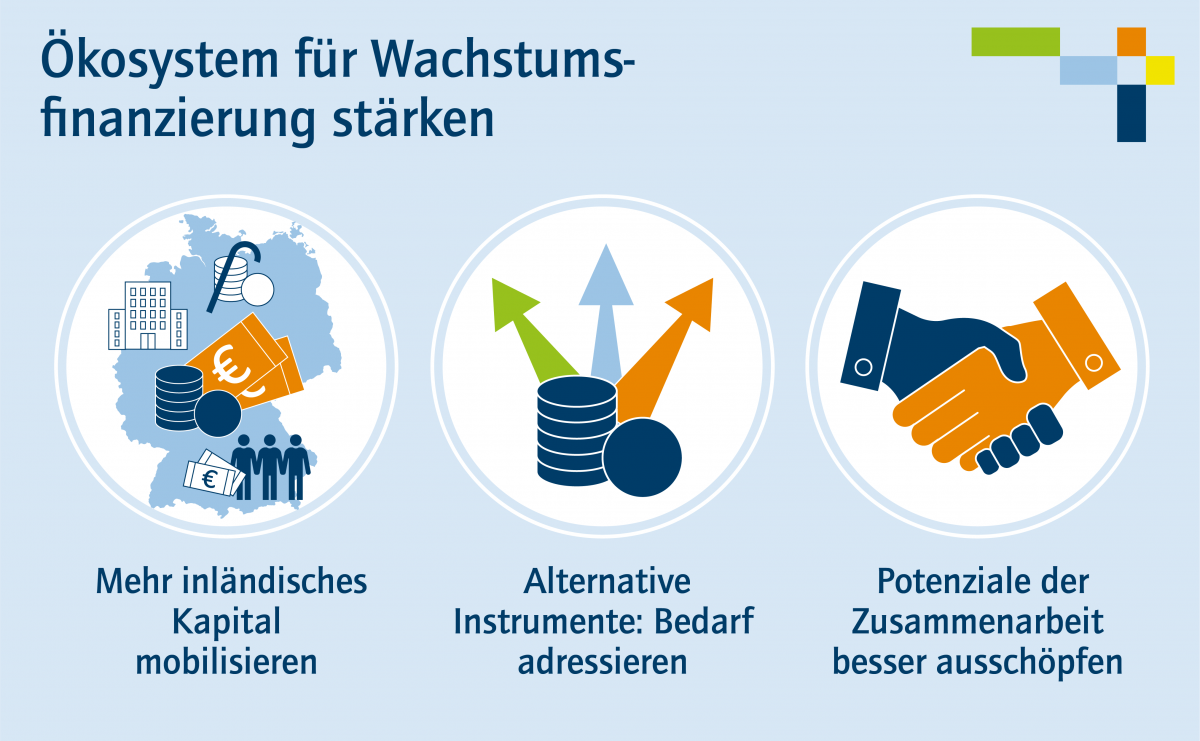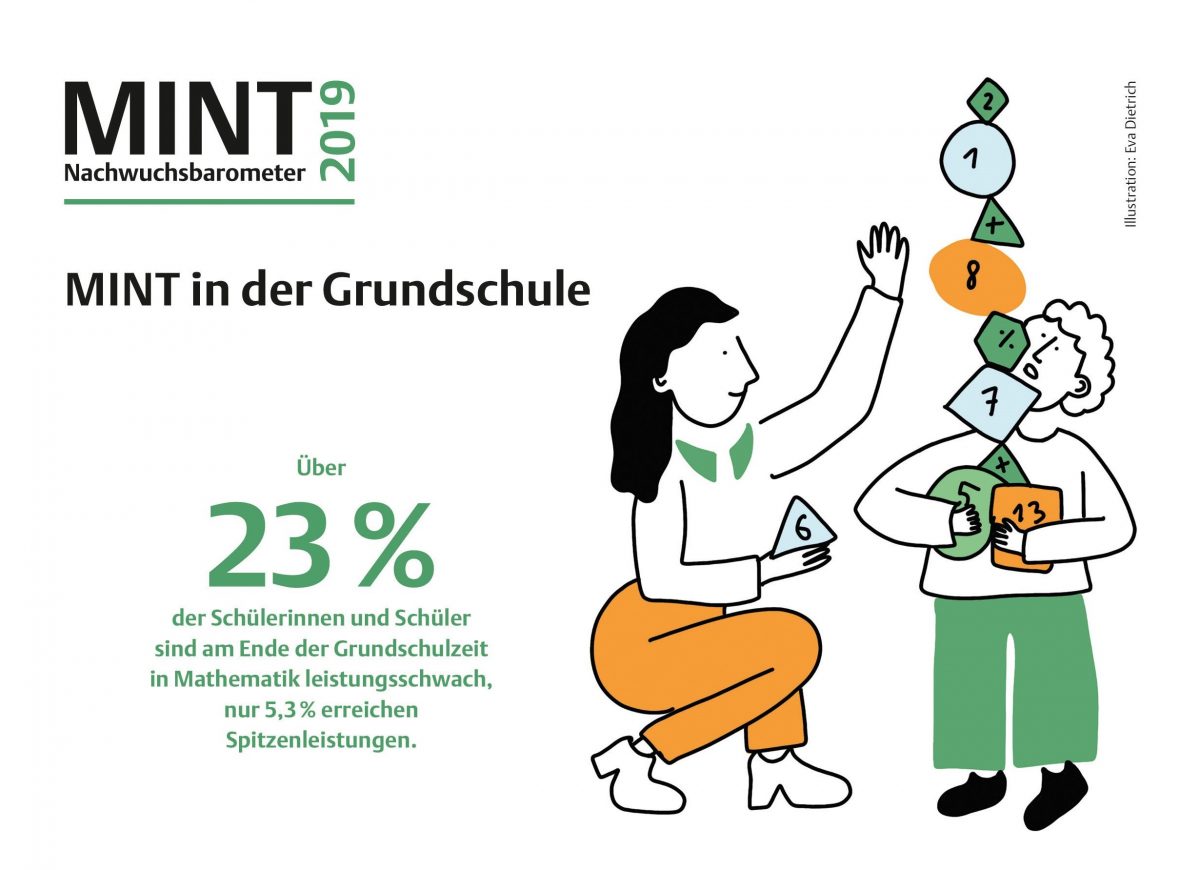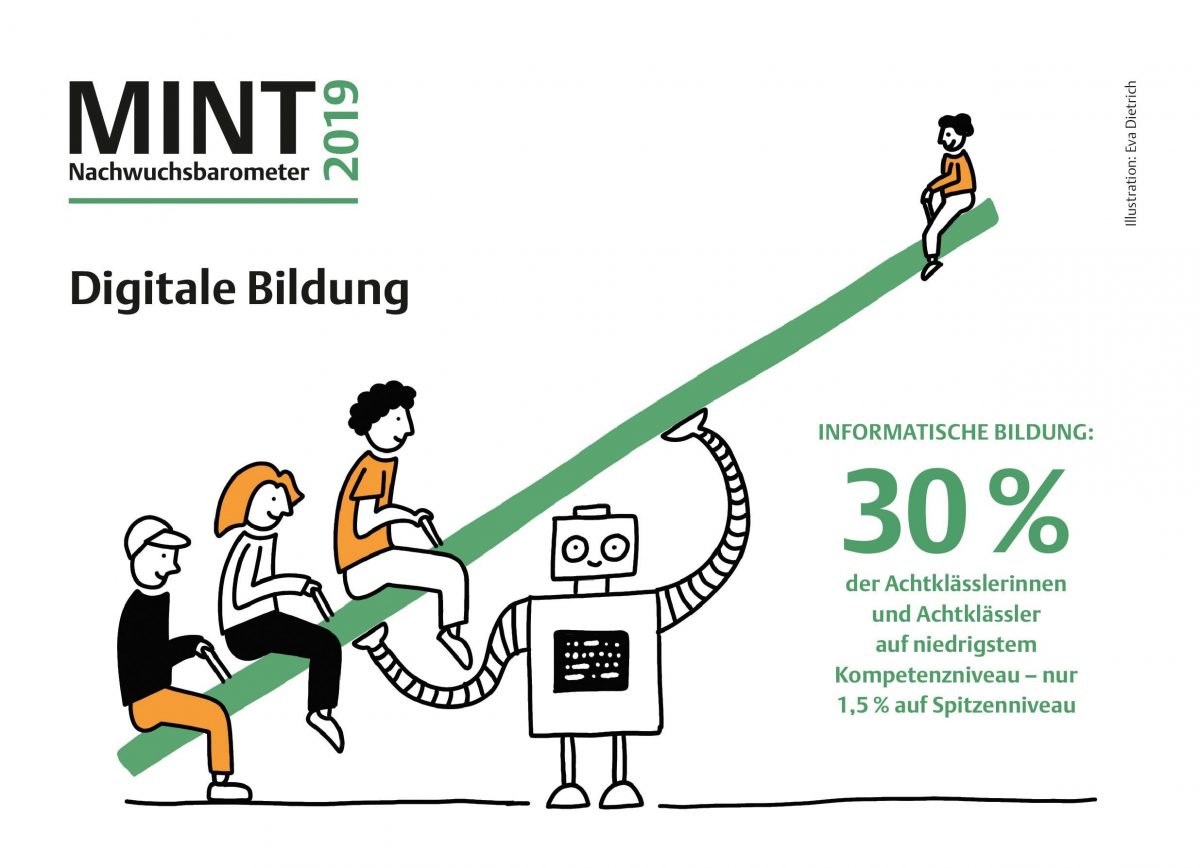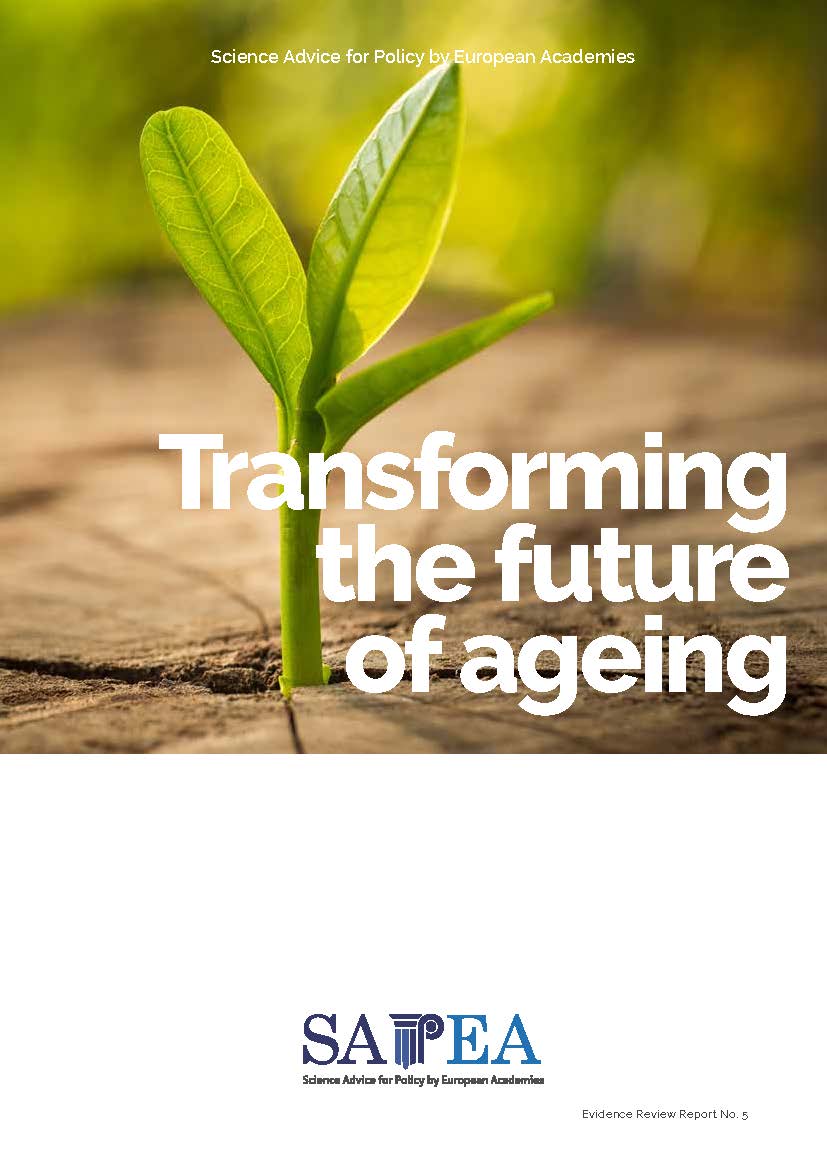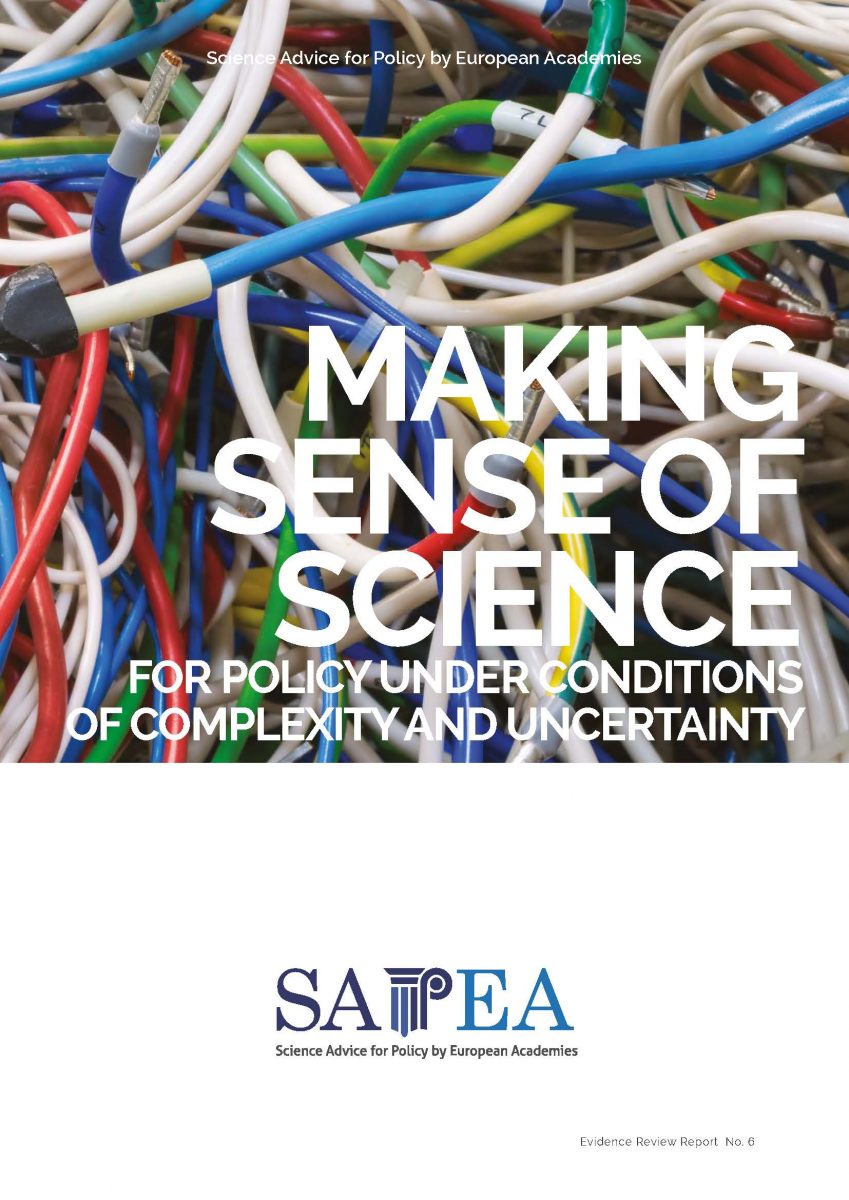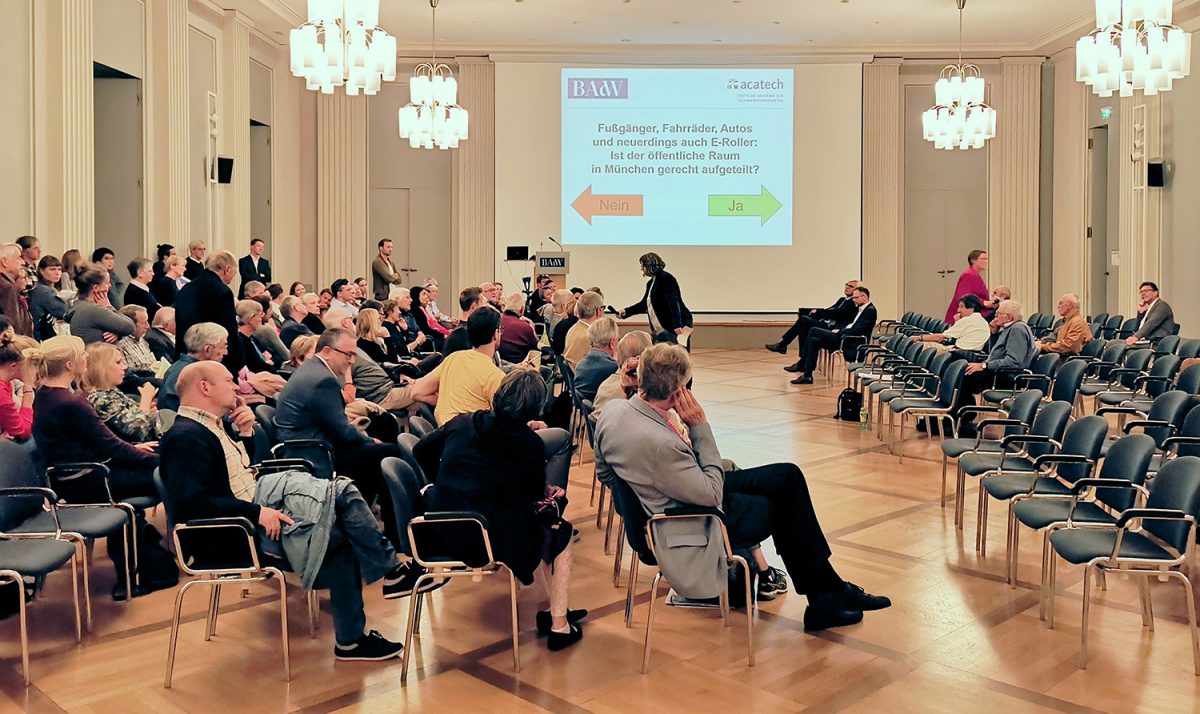Presidents’ Foreword
Before we begin our review of 2019 at acatech, we would like to say a few words about the current coronavirus crisis. The acatech IMPULSE published at the end of March discussed three strands of action for managing the crisis: Intervention – Stabilisation – Stimulation. It is becoming increasingly clear that technology, and in particular digital technology, can help to build more resilient societies and economies that are better able to cope with crises like the current pandemic. As we speak, acatech and the technological sciences in general are working to make this happen.
Digital sovereignty and the environmental, economic and social dimensions of sustainability were recurring themes on the innovation policy agenda during the past year. Young people campaigned for climate action, forcing policymakers to sit up and take notice of the issues. While the German government decided to phase out coal-fired power stations and passed a Climate Protection Act, the expansion of wind power stalled. Protests calling for a radical reform of agricultural policy were met with counter-protests by farmers. Technology is not a panacea for these conflicts, but it does provide us with opportunities to address them. Ultimately, it is up to us as a society to harness technology for the good of mankind and the environment.
During the past year, acatech worked towards this goal on several different fronts. For instance, we initiated the Circular Economy Initiative Deutschland, in which academia and industry are developing strategies to decouple economic growth from resource consumption. We also carried out a public survey on mobility and climate protection, published a target scenario for mobility post-2030 and, together with the National Platform Future of Mobility, moderated the debate about the best way of achieving it. The design of a carbon pricing system was one of the key themes addressed by our ESYS project, which pools expert advice in the climate protection debate. Finally, our latest “acatech HORIZONS” publication on sustainable agriculture investigated ways of making agriculture both environmentally sustainable and sustainable for consumers and farmers.
There is no shortage of good ideas. However, we urgently need to improve the productivity of our economy by modernising existing companies and founding new ones in order to translate good ideas into innovative, profitable goods and services. To this end, in 2019, we published a paper on growth finance, which is a key enabler in this context. We can no longer allow German start-ups to keep failing before they have a chance to become new champions because their access to finance dries up just when they have reached their growth phase. We discussed the relevant policy options with Federal Minister Peter Altmaier in March 2020, and warmly welcome the fact that the Federal Government has included start-ups in its economic support package for the current crisis.
Strength in research and the translation of this research into innovative, sustainable applications are the key requirements for the technological and digital sovereignty that we will need if we wish to have control over our own future. Digitalisation, connectivity and digital platforms are all helping us through the current crisis. They are helping us to stay in touch with our friends and family in spite of the social distancing rules required to protect public health. Moreover, organisations that had already adopted digital technology before the crisis are now better able to maintain education provision, economic performance and industrial production. We are also realising that it is important to have a certain degree of digital sovereignty and freedom of choice. The foundations for this are being laid by the GAIA-X project. Launched in 2019, the project design was supported by acatech and the acatech platforms.
Ultimately, we will have to decide as a society whether we actually want sovereign control over the development of digitalisation and technological change. With this in mind, acatech hosted over forty public discussion events in the past year alone, and presented its work for discussion in several different media. Going forward, we will be working with various foundations to systematically test the best ways of promoting an open, creative relationship between technological and social change.
Looking ahead, the coronavirus crisis will be with us for some time to come. It is unrealistic to imagine we can find an exit strategy that instantly returns things to exactly how they were before. We need to take things one step at a time, gradually progressing from cautious normalisation towards cautious normality. This will allow us to refine the protective measures needed to stem the number of infections, while at the same time learning from the crisis and maintaining the rate of modernisation and digital connectivity growth that has been forced upon us by the pandemic.
We would like to thank you and everyone who contributes to acatech’s collective efforts, listens to what we have to say and discusses technological advances with us for the good of society. Stay safe, stay curious, and we hope you enjoy reading our annual report.
Munich and Berlin, April 2020
Prof. Dr.-Ing. Dieter Spath

Karl-Heinz Streibich

Thematic fields
Technology & Society
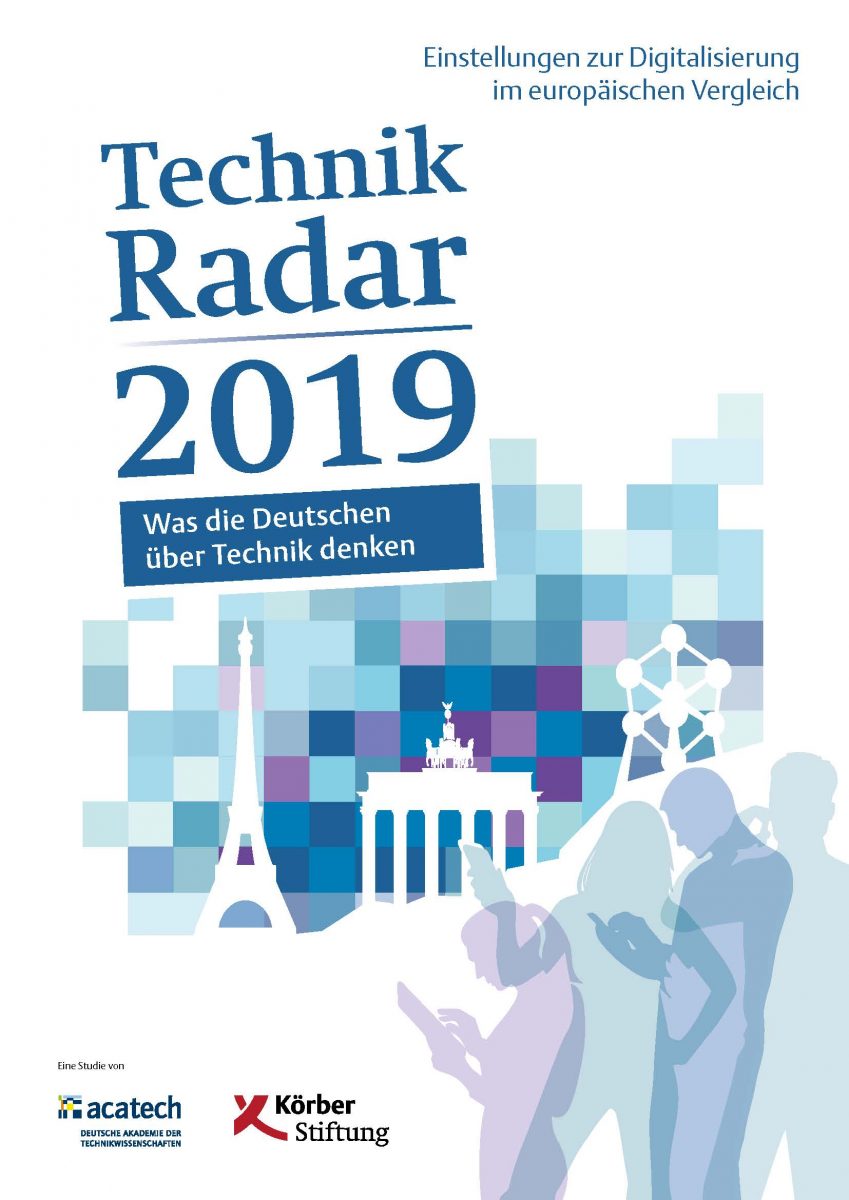
Published jointly by acatech and the Körber Foundation, the TechnikRadar survey explores what Germans think about technology. The University of Stuttgart’s Center for Interdisciplinary Risk and Innovation Studies carries out the survey and analyses the results. TechnikRadar 2019 compares the findings of the 2018 survey with international studies of attitudes in several other European and some non-European countries. It also looks at how age and gender influence people’s views, as well as comparing the opinions of people in Germany and other European countries with regard to future digital applications in their everyday lives such as e-health, autonomous driving and robot carers.
„People who regard themselves as relatively competent users of digital technology and have confidence in the institutional regulation of digitalisation tend to be more optimistic about their ability to influence it and the opportunities that it has to offer. People tend to have a more critical attitude towards digitalisation if they perceive it as something that they are powerless to influence. “
Cordula Kropp, sociologist at the University of Stuttgart’s Center for Interdisciplinary Risk and Innovation Studies and the project’s lead researcher.
Expectations with regard to digitalisation
Given the fact that it was published just two days after the European elections, it seems appropriate that TechnikRadar 2019 reveals differences in how people across Europe feel about the opportunities of digitalisation. Overall, opinion in Germany falls somewhere in the middle of the spectrum. Although Germans tend to be less optimistic than other Europeans, there are some exceptions. For example, they are relatively bullish about the economic impacts of digitalisation. 82% of Germans think that digitalisation will have a positive impact on the economy – slightly more than in Sweden (79%) and significantly more than the European average of 75%.
Confidence in different actors
Opinions vary across Europe on the question of whether businesses, national authorities or the EU are best placed to regulate the impacts of the latest digital technologies. 20% believe that businesses should be responsible, 19% feel that responsibility should be shared between all three actors, while 16% think that it is a task for the national authorities. In Germany, 27% of respondents said that businesses should be responsible, whereas just 13% thought that responsibility should lie with the EU.
Robot carers
When you get older, or if a time comes when you require care, how comfortable would you be with the idea of having a robot to look after you and keep you company? Half of all Europeans (51%) are uncomfortable with this scenario, and the percentages are even higher in southern Europe (76% in Greece, 71% in Portugal and 62% in Spain). On the other hand, willingness to accept technological assistance is higher than average in Poland (45%), the Czech Republic (42%) and the Baltic states, while the figure for Germany (47%) is close to the European average of 26%.
Lothar Dittmer, Chairman of the Executive Board of the Körber Foundation
„We need a bolder attitude towards future technologies in Germany, otherwise we could jeopardise our prosperity and our position as a global leader in technology and innovation.“
Responsibility in the technological sciences
The principle of responsibility clearly plays a critical role in the field of technology, since ultimately it is human beings who decide how technology is used. However, specialisation means that the interrelationships between technology, society and the environment are becoming more and more complex, leading to a diffusion of responsibility – individuals are increasingly reliant on information and opinions provided by other experts. Over a hundred members and representatives of companies from the Academy’s Senate attended an internal acatech meeting where they discussed various aspects of this issue, including “ethics and responsibility as an integral part of technology engineering” and how this ties in with corporate culture and integrative education and training. A summary of the findings of the project group on “Responsibility in the technological sciences” will be published in 2020.
In addition to technological science studies and analyses, another priority in the field of technology communication involves the organisation of dialogue events. This aspect is addressed in detail in the section on “Public dialogue events”.
Further information
Projects
Publications
News items
- TechnikRadar 2019: What Europeans think about the digital transformation
- acatech am Dienstag: Potenziale der Quantentechnologien*
- Was soll Pflegerobotik leisten und wo braucht es den Menschen?*
- Die Welt im Wandel: Die Perspektive aus dem All – Ein Gastbeitrag von Hansjörg Dittus*
- Pünktlich zum Agrargipfel: Neue Ausgabe der acatech HORIZONTE zum Thema Nachhaltige Landwirtschaft erschienen*
- acatech HORIZONTE trifft Interaktionsdesign: Der Nachhaltigkeitsfinder*
- Bundesweite Aktionstage Netzpolitik und Demokratie: acatech richtet Cyber Security-Fortbildung für Lehrkräfte aus*
- Vorhandenes Wissen nutzen – Austausch zwischen ökologischer und konventioneller Landwirtschaft*
- Wissenschaftsbarometer 2019 zeigt Notwendigkeit wissenschaftlicher Politik- und Gesellschaftsberatung*
- Nachhaltige Landwirtschaft aus sozialethischer Perspektive – Ein Interview mit Markus Vogt*
- Mobilität der Zukunft gemeinsam gestalten*
- acatech am Dienstag: Diskriminierung durch Algorithmen – Die Ursache ist immer der Mensch*
- Nitrat im Grundwasser – ein Problem, das uns alle angeht*
- acatech am Dienstag: Umsteigen aber wie? – Mobilität in der Stadt von morgen*
- Unterhausdebatte zur Mobilitätswende*
- Digitalisierte Düfte – eine inspirierende Vision*
- Journalistenpreis PUNKT geht an den BR für die „Smart-Home-WG“ und an die Fotografen Volker Crone und Hannes Jung*
- acatech am Dienstag: Kann die Blockchain-Technologie demokratische Prozesse verbessern?*
- Technik und Gesellschaft – Wie lässt sich Zukunft gemeinsam gestalten?*
- Wie kommt das Neue in die Welt? acatech-Präsident Dieter Spath im Deutschen Museum*
- acatech am Dienstag: Volles Haus bei Diskussion über nachhaltige Mobilität in Landshut*
- Multimedia-Formate von WDR, Tagesspiegel, BR und drei Fotoserien für den Journalistenpreis PUNKT nominiert*
- Öffentlicher Dialog in Landshut: Nachhaltige Mobilität in Stadt und Land*
- TechnikRadar-Datensatz jetzt frei verfügbar*
- Workshop-Teilnehmende erarbeiten Zukunfts-Kompetenzbild für Lehrerinnen und Lehrer*
- acatech und die Bayerische Stiftung Amerikahaus veranstalten Blockchain-Herbst*
- acatech, Wissenschaft im Dialog und Körber-Stiftung veranstalten Data Camp*
- Gemeinsame Tagung von acatech und der Akademie für Politische Bildung Tutzing*
- Textiltechnik – was können die textilen Produkte der Zukunft?*
- Journalistenpreis PUNKT – Kategorie Foto und Fotostipendium: Bis 25. Juli sind noch Bewerbungen möglich*
- Schülerinnen und Schüler zu Gast bei acatech*
- 69. Lindauer Nobelpreistreffen: acatech entsendet vier Nachwuchstalente*
- acatech Autoren bringen erstmals Beitrag zum Thema Technikkommunikation in die Hütte*
- Cyber Security für Jeden – Studierende der Hochschule München erarbeiten Konzepte zur Aufklärung vor Gefahren im Internet*
- Cyber-Attacken: Was wir aus den Angriffen in der Vergangenheit lernen können*
- Lernwerkstatt Technikkommunikation zu Gast im acatech Forum*
- acatech am Morgen: Präsidiumsmitglied Ortwin Renn diskutiert mit bayerischen Abgeordneten die Ergebnisse des TechnikRadar*
- Technik im Fokus: Einsendeschluss für Fotostipendium und Fotobeiträge endet in zwei Wochen*
- Cyber Security: Der Staat im Spagat zwischen Schutz und Ethik – acatech am Mittag im Deutschen Bundestag*
- Akademietag: Warum Biotechnologie immer wichtiger wird*
- TechnikRadar 2019: Wie Europäerinnen und Europäer den digitalen Wandel bewerten*
- Zukunft gestalten mit neuen Technologien: Unternehmen sollten Beschäftigte beteiligen*
- Wissenschaft im Dialog, Körber-Stiftung und acatech laden zum DataCamp nach Berlin*
- Multimedialer Technikjournalismus gesucht – Bewerbungen für den Journalistenpreis PUNKT bis 20. Mai*
- acatech am Diensdog “sauba derbleckt!“*
- Journalistenpreis PUNKT 2019: Jetzt für die Kategorien Multimedia und Foto bewerben*
- Bioökonomie – mehr als „dasselbe in Grün“?*
- Smarte Maschinen und Künstliche Intelligenz: Der Mensch muss gestalten*
- Künstliche Intelligenz im Wissenschaftsjahr 2019 – ein Ausblick*
- Künstliche Photosynthese – die Mondlandung des 21. Jahrhunderts?*
* Content only available in German.
Digital & Self-learning
Artificial Intelligence
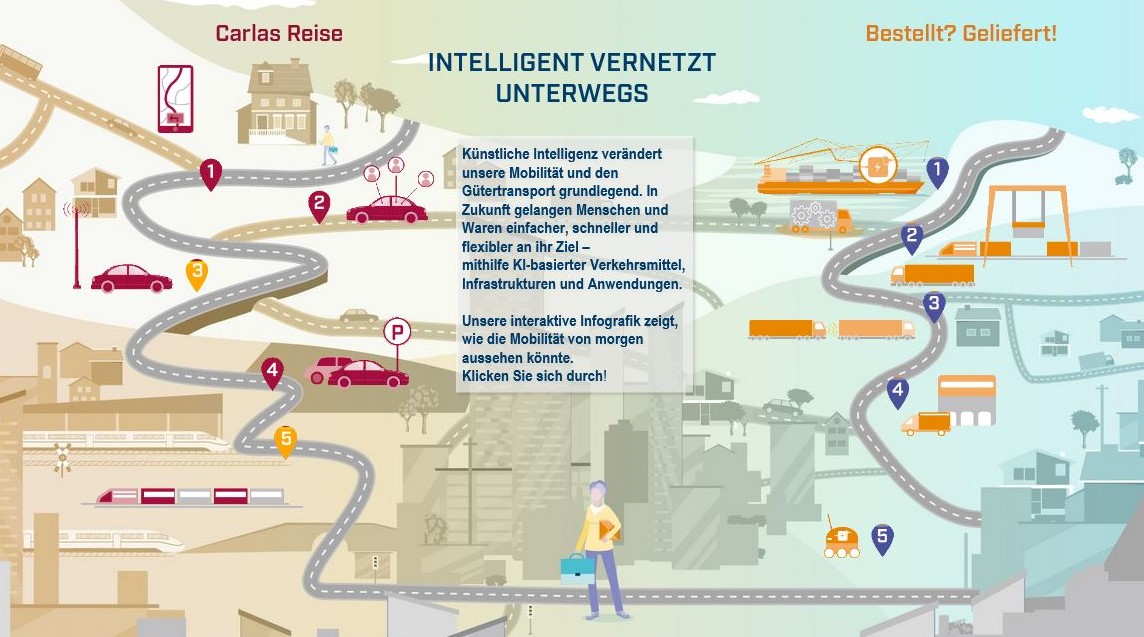
„We need to help people understand that we can shape the future of AI and are not powerless to influence its development. We need a broad public debate.”
Karl-Heinz Streibich, acatech President and Chair of the Plattform Lernende Systeme
The next stage of the digital revolution is upon us, with the focus now on artificial intelligence (AI). AI-based applications and business models are emerging in fields such as manufacturing, medicine and mobility. During 2019, members of the Plattform Lernende Systeme (PLS) engaged in discussions with the public at a variety of events including a round table with patient representatives, regional debates and a speed dating with the experts event. On its website and at several events, the PLS used application scenarios helped to illustrate some of the things that will soon be possible with the aid of AI. The Plattform Lernende Systeme’s experts are investigating specific AI application fields (e.g. medicine and mobility), as well as cross-cutting issues such as AI-related discrimination and technology enablers. The PLS produced several publications on these issues in 2019.
By the end of last year, the AI map compiled by the Plattform Lernende Systeme featured around 700 applications throughout Germany. The AI map aims to present an overview of where AI is already being used in Germany and which institutions are researching it. Since November 2019, this overview of AI applications has also shown where regional transfer hubs are supporting the translation of research findings into successful business models. As well as data, expertise and appropriate infrastructure, the development of AI applications also depends on public trust. The Platform’s Annual Conference took place in Berlin in July 2019. In addition to the conference programme, delegates had the opportunity to try out various AI applications such as an intelligent artificial hand.
In addition to its work with the Plattform Lernende Systeme, there are a number of other areas – such as medical technology – where acatech is carrying out in-depth research into artificial intelligence in our economy and our society as a whole. Under the leadership of Olaf Dössel, the project “Machine Learning in Medical Technology” considered the ethical, legal and regulatory dimensions of this subject. These include questions relating to data protection, potential changes in the doctor-patient relationship and the establishment and use of large medical databases. Due to be published in March 2020, the acatech POSITION PAPER on this topic makes a number of concrete recommendations.
There is little doubt that machine learning skills will be key to the future competitiveness of German companies. Consequently, acatech and the German Research Center for Artificial Intelligence (DFKI) launched the UPLINX project in order to develop targeted professional development and qualification programmes for businesses. The project has organised industry workshops, training courses, seminars, exercises and expert discussions on topics such as interaction with wearables and the Internet of Things, long-term learning in robotics, human-technology interaction and multimedia & smart services. It has also discussed these themes with members of the general public who have some expertise in this area. Moreover, in autumn 2019, professionals and students attended a series of workshops where they developed prototype application concepts. To complement the DFKI’s professional development programme, acatech has collaborated with experts from science and industry to produce a series of short videos on the project’s core topics.
Industrie 4.0
acatech coordinates the Research Council of the Plattform Industrie 4.0. Comprising around 30 representatives of science and industry, the Research Council is an independent strategic body that cooperates closely with the Plattform Industrie 4.0 and its working groups, as well as advising the relevant Federal ministries, in particular the Federal Ministry of Education and Research (BMBF). Its aim is to support the successful ongoing development of Industrie 4.0 and the pre-competitive planning of its implementation in German industry. In 2019, acatech’s role as coordinator of the Research Council was renewed for a further five years
The Research Council acts as a “sensor” for current trends, observing and analysing the development of Industrie 4.0 in Germany over the medium to long term. Its role also includes proposing future research topics and supporting and advising on the implementation of Industrie 4.0. The Research Council produces publications in which it formulates new, pre-competitive research proposals and recommendations to support the successful translation of Industrie 4.0 concepts into industrial applications. The Research Council concentrates on the following five Industrie 4.0 fields:
- Technological enablers
- Methods and tools for Industrie 4.0
- Value networks
- Work and society
- Ongoing development of Germany’s successful innovation system
To ensure that these themes are also addressed internationally, the Research Council works closely with actors such as the Global Representative and Advisor of Plattform Industrie 4.0, a position currently held by Chairman of the acatech Board of Trustees, Henning Kagermann.
Smart maintenance: driving Industrie 4.0
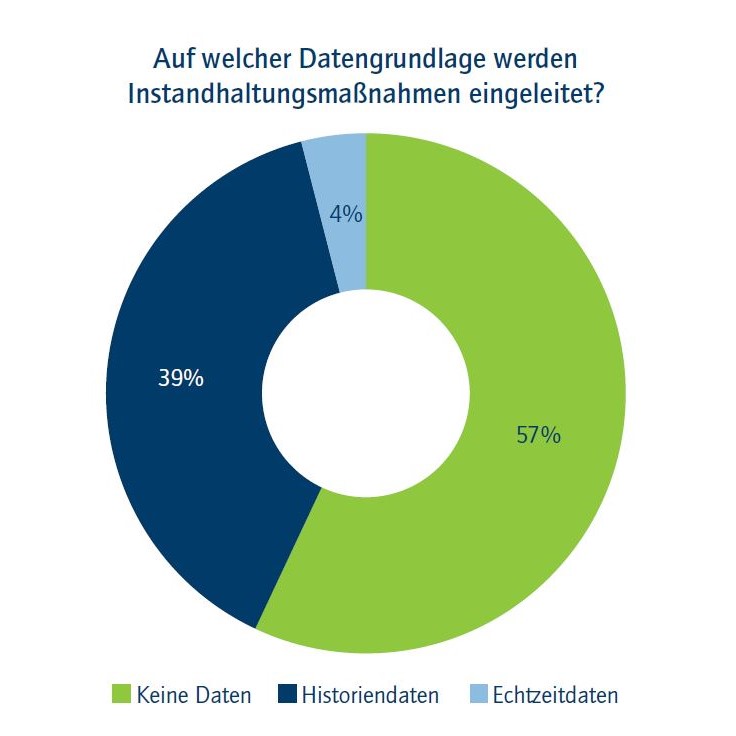
The maintenance of production processes was based on data in less than half of the industrial companies surveyed – and only a handful were using the real-time data required for Industrie 4.0. Source: acatech STUDY Smart Maintenance, p. 17 © acatech
In order to meet the needs of a production environment that is becoming increasingly complex as a result of digitalisation, manufacturing companies need an innovative and intelligent approach to maintenance. Smart maintenance will drive the factories of the future and the success of Industrie 4.0. The joint project on “Smart Maintenance” funded by the Federal Ministry for Economic Affairs and Energy (BMWi) aims to raise awareness among industrial enterprises of the need for sustainable, innovative maintenance and identify the measures required to make it a reality. The acatech STUDY “Smart Maintenance – Der Weg vom Status quo zur Zielvision” (Smart Maintenance – How do we get from the status quo to the vision?) provides an overview of the progress that has been made so far towards implementing smart maintenance in practice. Based on this status quo, it identifies the priorities that must be addressed in order to move from mere maintenance to smart maintenance. It also presents a roadmap setting out a vision of smart maintenance in industry and how it can be implemented. It concludes that today’s vision can become tomorrow’s status quo if a structured approach is adopted.
Human-Machine Interaction
Presenting the results of a project led by Henning Kagermann (Chairman of the acatech Board of Trustees) and Youichi Nonaka (Senior Chief Researcher at Hitachi), the acatech DISCUSSION paper “Revitalizing Human-Machine Interaction – Perspectives from Germany and Japan” identifies a number of specific socioeconomic challengesin two of the world’s leading industrialised nations, Germany and Japan. These include an aging workforce, a shortage of skilled labour and aging machines and infrastructure. The paper goes on to describe how human-centred approaches to human-machine interaction can make a positive contribution to the development of a more sustainable society.
„Many publications tend to introduce new technologies such as artificial intelligence (AI), software-defined control (SDC), 5G communications, etc., but they do not focus on challenges and policies from sociological and organizational points of view. Changing this was the motivation of the German and Japanese colleagues gathered for this project.”
Youichi Nonaka, Senior Chief Researcher at Hitachi
„While Japan and Germany are being confronted with similar societal challenges (e.g., aging population, skills shortage, etc.), the countries’ methods to finding solutions differ as a result of diverging societal trends and culturally related problem-solving approaches.”
Henning Kagermann, Chairman of the acatech Board of Trustees
The different approaches adopted by the two countries can be attributed to different social phenomena and cultural differences. The paper highlights the differences and similarities between the two countries and identifies potential areas of future cooperation between Germany and Japan. It was published in September 2019 in cooperation with the Plattform Industrie 4.0, the Robot Revolution & Industrial IoT Initiative (RRI) and other leading figures from science, industry and the IG Metall trade union.
Digital sovereignty in the platform economy
Because they have sovereignty over users’ data, digital platforms are developing into the “operating systems of entire industries”. They define the rules, standards and interfaces that determine how a data platform operates and hence its openness and interoperability. At present, the B2C market is dominated by established cloud and platform businesses from the US and China (hyperscalers like Amazon, Alphabet, Tencent and Alibaba), primarily through economies of scale, lock-in and network effects. These companies are now using their data-based consumer knowledge to make further inroads into the industrial (B2B) market. The market dominance of these hyperscalers could also have implications for the digital sovereignty of Germany and Europe.
acatech shared the findings of the project “Digital service platforms – success factors for the Smart Service Welt” with the relevant working groups of Plattform Industrie 4.0 and the Plattform Lernende Systeme. In 2019, acatech participated in the discussions concerning the development of a strategy to ensure Europe’s digital sovereignty. As part of the GAIA-X initiative, acatech and the Plattform Lernende Systeme have jointly developed a use case for AI-based assistance systems in healthcare. An e-triage system that directs patients from the moment they arrive at the hospital right through to treatment could provide upstream support for the medical staff treating them. The assistance system’s tasks include assessing data provided by the patients themselves while they are in the waiting room, supplemented by additional findings from preliminary examinations.

Complex systems call for Advanced Systems Engineering
Advanced Systems Engineering (ASE) is a new approach to the development of increasingly connected, intelligent and self-learning products and product-service systems that aims to modernise existing methods and forms of work organisation in the engineering industry. Its goal is to ensure that Germany maintains its global leadership in innovation and manufacturing, in the face of growing international competition from the big tech giants. To this end, acatech has launched the AdWiSE project in conjunction with the Fraunhofer IEM, IAO and IPK institutes and the IPEK Institute of Product Engineering. The project aims to establish the current status of ASE in Germany and formulate a strategy for its development and dissemination.
“It is clear from the experience of industry that we need to adopt new approaches to the development of intelligent technological systems and the services based on them if we are to secure Germany’s future as a centre of innovation and manufacturing. We will work with industry, academia and government to formulate a strategy for establishing engineering as a core competence in the context of digitalisation.”
Jürgen Gausemeier, acatech Vice-President
The first provisional findings from the project’s empirical investigation of the status quo of Advanced Systems Engineering in industry became available at the end of 2019. They reveal that there is still a long way to go in both industry and academia. For instance, it is proving extremely difficult to transfer new ASE methods from theory to practice. Furthermore, initial experiences indicate that the changes call for an extensive transformation within companies and cannot be confined to individual projects.
Further information
Projects
- Forschungsbeirat der Plattform Industrie 4.0*
- acatech HORIZONTE: Künstliche Intelligenz in der Industrie*
- AdWiSE – Vernetzung der Akteure zur disziplinübergreifenden Entwicklung komplexer vernetzter sozio-technischer Systeme für die Wertschöpfung von morgen (Advanced Systems Engineering)*
- UPLINX – Interuniversitäres Qualifikationsprogramm Machine Learning für die Praxis*
- acatech HORIZONTE: Blockchain*
- Lernende Systeme – Germany’s platform for artificial intelligence
- SmartAiwork (Zukunft der Betriebsabläufe)*
- HR Working Group – Forum for HR Directors on the Future of Work
- Innovationskraft in Deutschland verbessern – Ökosystem für Wachstumsfinanzierung stärken*
- Smart Maintenance – Der Weg vom Status quo zur Zielvision*
Publications
- Data Science: Lern- und Ausbildungsinhalte*
- Neue Geschäftsmodelle mit Künstlicher Intelligenz – Zielbilder, Fallbeispiele, Gestaltungsoptionen*
- Akzeptanz von Industrie 4.0. Abschlussbericht zu einer explorativen empirischen Studie über die deutsche Industrie*
- Smart Maintenance – Der Weg vom Status quo zur Zielvision*
- Key themes of Industrie 4.0. Research and development needs for successful implementation of Industrie 4.0
- Revitalizing Human-Machine Interaction for the Advancement of Society – Perspectives from Germany and Japan
- Lernende Systeme im Gesundheitswesen – Grundlagen, Anwendungsszenarien und Gestaltungsoptionen*
- Auf dem Weg zu einem intelligenten Mobilitätsraum – Handlungsfelder, Chancen und Herausforderungen*
- Künstliche Intelligenz und Diskriminierung – Herausforderungen und Lösungsansätze*
- Arbeit, Qualifizierung und Mensch-Maschine-Interaktion – Ansätze zur Gestaltung Künstlicher Intelligenz für die Arbeitswelt*
- Maschinelles und Tiefes Lernen – Der Motor für „KI made in Germany“*
- acatech HORIZONTE: Cyber Security*
- Anwendungsszenarien für KI: Intelligent vernetzt unterwegs*
- Enhancing innovation in Germany by strengthening the growth finance ecosystem
- Lernende Systeme in lebensfeindlichen Umgebungen – Potenziale, Herausforderungen und Gestaltungsoptionen*
- Anwendungsszenarien für KI: Information Butler fürs Büro*
- Anwendungsszenarien für KI: Lernfähiges Roboterwerkzeug in der Montage*
- Künstliche Intelligenz und IT-Sicherheit – Bestandsaufnahme und Lösungsansätze*
- Akzeptanz von Industrie 4.0*
- Vorstudie zur Entwicklung einer bedarfs- und nutzergerechten Unterstützung von KMU bei der Einführung und Anwendung von Industrie 4.0*
- Anwendungsszenarien für KI: Unter Wasser autonom unterwegs*
- Faster to Market Success. Memorandum of the Plattform Industrie 4.0 Research Council for a More Agile and Flexible Innovation System in Germany
- Anwendungsszenarien für KI: Schnelle Hilfe beim Rettungseinsatz*
- Anwendungsszenarien für KI: Mit Künstlicher Intelligenz gegen Krebs*
News items
- Nachhaltigkeit in der Lebensmittelherstellung – Ein Gastbeitrag von Stephan Becker-Sonnenschein*
- Was soll Pflegerobotik leisten und wo braucht es den Menschen?*
- Bundesweite Aktionstage Netzpolitik und Demokratie: acatech richtet Cyber Security-Fortbildung für Lehrkräfte aus*
- Wie lernende Systeme die Produktion effizienter machen*
- acatech am Dienstag: Diskriminierung durch Algorithmen – Die Ursache ist immer der Mensch*
- Digital-Gipfel: Digitale Souveränität in Zeiten von KI und Plattformökonomie*
- Akzeptanz von Industrie 4.0: Forschungsbeirat legt Abschlussbericht vor*
- Digital-Gipfel 2019: Plattform Lernende Systeme präsentiert Umfeldszenario zur Mobilität der Zukunft*
- Zukunftsfähig mit KI: Plattform Lernende Systeme veröffentlicht Leitfaden für Unternehmen*
- Digital-Gipfel 2019: Beiträge der Plattform Lernende Systeme und von acatech Präsident Karl-Heinz Streibich*
- Bürgerdiskussion über Künstliche Intelligenz und Robotik in der Medizin*
- Studie: Smart Maintenance in der produzierenden Industrie noch nicht angekommen*
- Was braucht der Mittelstand? Plattform Lernende Systeme bei KI-Mittelstandstagung im BMWi*
- acatech am Dienstag: Kann die Blockchain-Technologie demokratische Prozesse verbessern?*
- Industrie 4.0: Forschungsbeirat nennt die wichtigsten Themenfelder der nächsten Jahre*
- acatech publishes English version of its STUDY on “Strengthening the growth finance ecosystem”
- acatech und die Bayerische Stiftung Amerikahaus veranstalten Blockchain-Herbst*
- Cybersicherheit und Gesellschaft: Wieviel Souveränität brauchen Deutschland und Europa?*
- acatech Vorstandsmitglied Martina Schraudner zu Gast bei Afterwork-Reihe „Digital Women“ von IHK und Digital Media Women*
- Nicht die Nutzer, sondern die Branche muss für die Onlinesicherheit sorgen – Ein Gastbeitrag von Stephan Micklitz*
- Digitalisierung braucht Cybersicherheitsforschung – Ein Gastbeitrag von Michael Waidner*
- Cyber Security für jeden: neue HORIZONTE-Publikation ist da*
- Cyber Security für Jeden – Studierende der Hochschule München erarbeiten Konzepte zur Aufklärung vor Gefahren im Internet*
- Cyber-Attacken: Was wir aus den Angriffen in der Vergangenheit lernen können*
- Workshop in Berlin: Wie Akzeptanz in der Industriearbeit 4.0 geschaffen werden kann*
- KI – Made in Germany: Jahreskonferenz der Plattform Lernende Systeme*
- acatech Studie zeigt, wie Finanzierungslücke für Wachstumsunternehmen geschlossen werden kann*
- Cyber Security: Der Staat im Spagat zwischen Schutz und Ethik – acatech am Mittag im Deutschen Bundestag*
- Einsatzkräfte schützen: Plattform zeigt Potenziale von KI in gefährlichen Umgebungen*
- Denn ohne Sicherheit ist keine Freiheit – Ein Gastbeitrag von Thomas Tschersich*
- InstandhaltungsForum 2019: acatech stellt erste Projektergebnisse zum Thema Smart Maintenance vor*
- Ratschläge zum Schutz persönlicher Daten von IT-Experte Alexander von Gernler*
- acatech im Bayerischen Landtag: Cyber Security – Wie wird der bayerische Mittelstand sicherer?*
- KI-Forschung in Deutschland: Landkarte der Plattform Lernende Systeme gibt Überblick*
- KI zum Ausprobieren: MS Wissenschaft tourt mit schwimmender Ausstellung durch Deutschland*
- Wettlauf um IT-Sicherheit: Plattform zeigt Chancen und Risiken von KI*
- Akzeptanz von Industrie 4.0-Lösungen: Beschäftigte müssen frühzeitig eingebunden und informiert werden*
- Industrie 4.0-Studie: KMU fehlen weiterhin qualifizierte Fachkräfte*
- Schneller zum Markterfolg: Forschungsbeirat legt Eckpunkte eines agileren Innovationssystems vor*
- Die digitale Transformation managen: acatech startet zur Hannover Messe neuen MOOC*
- A brief history of AI – Plattform Lernende Systeme launches explanatory film
- Smarte Maschinen und Künstliche Intelligenz: Der Mensch muss gestalten*
- Mit KI gegen Lungenkrebs: Anwendungsszenario der Plattform Lernende Systeme*
- Cyber Security und digitale Souveränität – Im Gespräch mit Jörn Müller-Quade (KIT)*
- Cybersicherheit und digitale Souveränität: Wenn die Interessen von Staat, Herstellern und Nutzern aufeinanderprallen*
- Debatte über Roboter und Lernende Systeme in der Arbeit – acatech am Dienstag gastiert in Bamberg*
- Künstliche Intelligenz im Wissenschaftsjahr 2019 – ein Ausblick*
* Content only available in German.
Energy & Resources
The energy transition and climate change were among the big issues of 2019, as demonstrated, for example, by the global climate strikes, the alliance between large sectors of academia, industry and civil society in favour of cross-sectoral carbon pricing, and the Federal Government’s climate package. Stronger climate protection measures are also on the horizon internationally. In the European Commission’s European Green Deal, the EU’s member states have almost unanimously committed to making the European Union climate neutral by 2050.
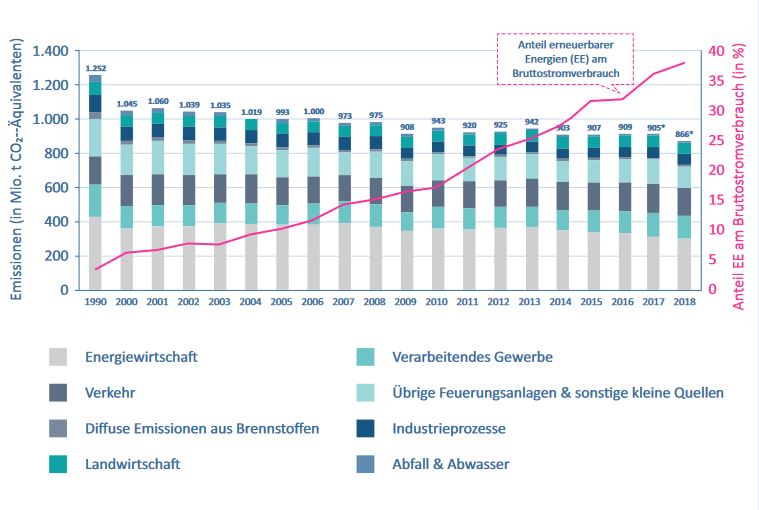
Annual greenhouse gas emissions for all sectors by category and renewables’ share of gross electricity consumption. Source: ESYS Kurz erklärt! „Warum sinken die CO2-Emissionen in Deutsch-land nur langsam, obwohl die erneuerbaren Energien stark ausgebaut werden?”, p. 2 © acatech/Leopoldina/Akademienunion 2019
“Energy Systems of the Future” (ESYS) – a joint initiative of acatech, Leopoldina and the Union of the German Academies of Sciences and Humanities – is contributing its scientific expertise to this debate. In the run-up to the crunch meeting of the “climate cabinet” in September 2019, ESYS submitted its guidelines for an efficient and effective market design, which outline how climate-friendly technologies can become established in the market. The experts conclude that cross-sectoral carbon pricing is the first essential step towards achieving this goal. It is also necessary to eliminate the distortions that are currently preventing efficient climate protection.

Flow diagram of global harvested biomass flows in exajoules/year for 2000. Based on Smith et al. 2014 and date from Erb et al. 2007, Schneider et al. 2009, FAO 2010, Wirsenius 2003, Sims et al. 2006, Krausmann et al. 2008, FAOSTAT 2012 and Kummu et al. 2012. The left-hand column illustrates the use of global land area. Question marks indicate that no data is available. © acatech/Leopoldina/Akademienunion 2019
As well as promoting the use of wind and solar power, a single carbon price for the electricity, transport and heating sectors also supports the climate-friendly production and utilisation of bioenergy. Bioenergy must be produced and used more sustainably in order to contribute to the necessary reduction in climate emissions. This was the conclusion reached by an ESYS working group in a position paper published in February 2019. The paper recommends that more bioenergy should be produced from residues and waste and that it should primarily be used for fuel production and process heat generation in industry. At the same time, research should be carried out into new climate protection solutions such as carbon capture technology in conjunction with bioenergy production.
„Germany will have a far better chance of meeting its climate targets if it generates negative emissions by removing CO2 from the atmosphere. We must carry out more research into these technologies in order to thoroughly assess the consequences of their deployment.”
Gernot Klepper, Kiel Institute for the World Economy (IfW)
Hydrogen is another energy source that will play an important role in the energy system of the future. This was one of the messages at the Annual Meeting of the joint academy project “Energy Systems of the Future” held at Berlin’s Futurium on 19 November 2019. ESYS experts and 120 guests from science, industry, government and civil society came together to discuss the challenges facing an increasingly digital and decentralised energy system. One of the key conclusions was that the energy transition must become more global. To achieve this, it will be necessary to boost the level of energy imports and increase networking and hydrogen partnerships.
German experts Down Under: cooperating with Australia to shape the energy transition
While Germany is still working on its national hydrogen strategy, Australia already has a roadmap. In September 2019, a German delegation visited Sydney, Canberra and Melbourne on a trip organised by acatech and the Federation of German Industries (BDI). As well as learning about the roadmap and the current state of energy research, the delegation also discussed potential partnerships. In Canberra, the delegation spoke with Australia’s Chief Scientist Alan Finkel about a possible bilateral feasibility study on trading green hydrogen.
Artificial photosynthesis holds long-term promise for the sustainable, carbon-neutral production of fuels and other valuable products. In May 2018, acatech, Leopoldina and the Union of the German Academies of Sciences and Humanities published a joint position paper on the subject. The paper’s findings provided input for the book “Künstliche Photosynthese: Besser als die Natur?” (Artificial Photosynthesis: Better than Nature?), which was published by Springer Nature in 2019.
New materials inspired by nature

In a project funded by the Federal Ministry of Education and Research, acatech is investigating how nature can inspire materials research. The acatech DISCUSSION paper published in December 2019 describes the different areas of application for bio-inspired materials, from chemistry, energy and medicine to robotics and the creative disciplines at the interface of biology and technology. The publication shows that bio-inspired materials can play an important role in Germany’s development as a centre of research and technology over the coming years. Germany’s strength in basic research must now be translated into sustainable value creation.
Bridging the gap between nature and agriculture
The nitrogen economy bridges the gap between nature and agriculture. While the nitrogen compounds in fertilizer play a necessary role in agriculture, they can also damage the environment, for instance by contaminating drinking water and harming biodiversity. A joint acatech and Leopoldina symposium on solutions for a sustainable nitrogen economyheld in Halle on 6 May explored ways of minimising the environmental impacts of nitrogen use in agriculture. One of its conclusions was that technological solutions such as precision farming – i.e. the use of digital technology to support agricultural management – can contribute to more environmentally-friendly agriculture. A joint acatech working group is currently formulating concrete recommendations for a sustainable nitrogen economy.
The role of geothermal energy in a sustainable energy supply
Although geothermal energy has so far only played a minor role in the energy transition, it has considerable potential, particularly in the heating sector. Geothermal energy can be used to provide heating and to a lesser extent cooling and electricity for our towns and cities. An acatech project group is investigating the environmental and economic potential and possible applications of geothermal technology for providing our metropolitan regions with sustainable heating, cooling and electricity. The key issues addressed by the group include how to integrate geothermal energy within the energy system and how to overcome current obstacles, for example with regard to financing. An acatech POSITION PAPER on the subject will be published in 2020.
Further information
Projects
- Wege in eine nachhaltige Stickstoffwirtschaft*
- EnVision – Eine Vision für die Energiewende gestalten*
- EIBA – Sensorische Erfassung, automatisierte Identifikation und Bewertung von Altteilen anhand von Produktdaten sowie Informationen über bisherige Lieferungen*
- Materialforschung: Impulsgeber Natur – Innovationspotenzial biologisch inspirierter Materialien und Werkstoffe*
- Sichere Entsorgung und Tiefenlagerung von hochradioaktivem Material*
- Circular Economy Initiative Deutschland*
- Energy Systems of the Future (ESYS)
- Pathways into the energy future. The transformation of energy systems in an international perspective
- Geothermal technologies in metropolitan regions: a contribution to the energy transition and climate protection
Publications
- Materialforschung: Impulsgeber Natur. Innovationspotenzial biologisch inspirierter Materialien und Werkstoffe*
- Wege zu einem integrierten Energiesystem – was jetzt geschehen muss. Impuls des Akademienprojekts „Energiesysteme der Zukunft“*
- Über eine CO2-Bepreisung zur Sektorenkopplung: Ein neues Marktdesign für die Energiewende*
- Framework Conditions for the Future of Materials. Analysis and recommendations
- Pathways towards a German Circular Economy. Lessons from European Strategies Preliminary Study
- Warum sinken die CO2-Emissionen in Deutschland nur langsam, obwohl die erneuerbaren Energien stark ausgebaut werden?*
- Welche Bedeutung hat die Kernenergie für die künftige Weltstromerzeugung?*
- Partizipation und Kommunikation in der Energiewende*
- Biomasse im Spannungsfeld zwischen Energie- und Klimapolitik. Potenziale – Technologien – Zielkonflikte*
- Biomass: striking a balance between energy and climate policies. Strategies for sustainable bioenergy use
- Governance for the European Energy Union
- Interdisziplinäres Bewertungsinstrument für Bioenergie-Entwicklungspfade*
News items
- Die Welt im Wandel: Die Perspektive aus dem All – Ein Gastbeitrag von Hansjörg Dittus*
- Pünktlich zum Agrargipfel: Neue Ausgabe der acatech HORIZONTE zum Thema Nachhaltige Landwirtschaft erschienen*
- Innovationspotenzial bioinspirierter Materialien in nachhaltige Wertschöpfung übersetzen*
- acatech HORIZONTE trifft Interaktionsdesign: Der Nachhaltigkeitsfinder*
- Vorhandenes Wissen nutzen – Austausch zwischen ökologischer und konventioneller Landwirtschaft*
- ESYS-Fachleute ordnen ein: Ist Wasserstoff das neue „Wundermittel“ der Energiewende?*
- Digitaler, dezentraler, internationaler: jetzt die Weichen für das Energiesystem der Zukunft stellen*
- Nachhaltige Landwirtschaft aus sozialethischer Perspektive – Ein Interview mit Markus Vogt*
- Nitrat im Grundwasser – ein Problem, das uns alle angeht*
- Deutsche Expertengruppe in Down Under: Wie können wir die Energiewende gemeinsam mit Australien gestalten?*
- acatech am Dienstag: Kann Bioenergie das Klima retten?*
- Innovationspotenzial biologisch inspirierter Material- und Werkstoffforschung*
- Zehn Punkte für ein integriertes Energiesystem*
- CO2 bepreisen, Energiesteuern reformieren – Vorschläge aus der Wissenschaft für einen ambitionierten Klimaschutz*
- Ein einheitlicher CO2-Preis: der Schlüssel für ein effizientes Marktdesign*
- acatech POSITION: Werkstoffe sind systemrelevant und brauchen faire Wettbewerbsbedingungen*
- Lichte Ideen zum Ferienbeginn: Schülerseminar und acatech am Dienstag zu Künstlicher Photosynthese*
- Raus aus der linearen Konsumlogik: Deutschland hat eine Circular Economy Initiative*
- Stau im Stromnetz: Wie können Netzengpässe möglichst effizient geregelt werden?*
- Lange Nacht der Wissenschaften: (Was) tanken wir morgen?*
- T20 Summit in Japan: Chancen und Herausforderungen der globalen Energiewende*
- Nachhaltige Mobilität durch synthetische Kraftstoffe?*
- Metalle für Zukunftstechnologien – wie decken wir zukünftig unseren Rohstoffbedarf?*
- ESYS-Konferenz: Ganzheitliche Lösungen für die Energiewende in den Blick nehmen*
- Warum die CO2-Emissionen Deutschlands nur langsam sinken – ESYS-Fachleute nennen Gründe*
- Wege in eine umweltschonende Stickstoffwirtschaft*
- Klimaschonend, selten lohnend: ESYS-Fachleute über die Zukunft der Kernenergie*
- Künstliche Photosynthese: Besser als die Natur?*
- Start der „Circular Economy Initiative Deutschland“*
- Fair, effektiv, transparent – Bürgerinnen und Bürgern eine Stimme in der Energiepolitik geben*
- Ein neuer europäischer Rechtsrahmen für die Energiewende – welche Chancen und Herausforderungen birgt die Energieunion?*
- Bioökonomie – mehr als „dasselbe in Grün“?*
- Academies of science identify strategies for the sustainable use of bioenergy
- 11. Trialog zur Energiewende: Handeln gegen den Klimawandel – wie verändert der Klimaschutz unseren Alltag?*
- Energy transition studies: now is the time to create a long-term framework and technology-neutral incentives
- Wie kann Deutschland die Governance-Verordnung der EU effektiv für die Energiewende nutzen?*
- acatech am Dienstag: Was ist Licht? Ein Dialog um Beleuchtung, Energie und Kunst*
* Content only available in German.
Circular Economy
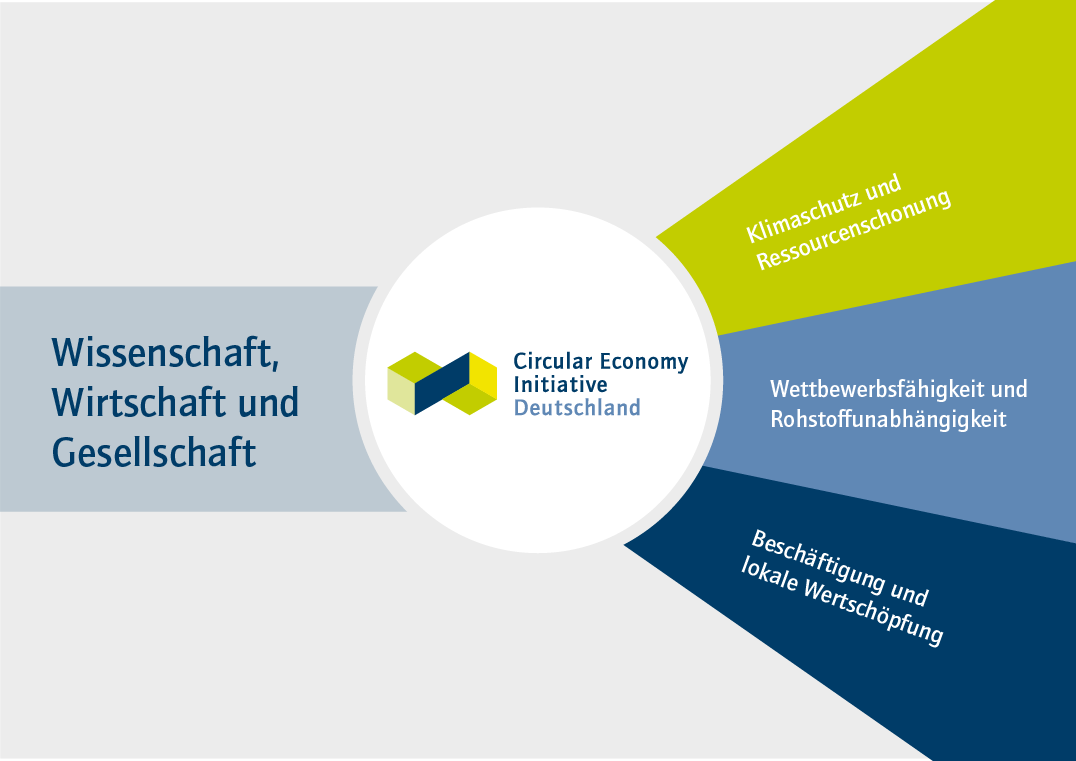
The Circular Economy Initiative Deutschland (CEID) was launched in March 2019. A broad range of stakeholders from science, industry and civil society organisations help develop a vision for a circular economy in Germany. The individual measures and general conditions will be summarised in the initiative’s final report, the Circular Economy Roadmap for Germany, which is currently under preparation. The roadmap is based on the working groups’ conclusions about circular business models, digital technologies and the regulatory framework, together with the two use cases on mobile electricity storage and packaging. The initiative will also assess the potential reductions in resource and energy consumption and greenhouse gas emissions that a circular economy could deliver.
„The Circular Economy Initiative Deutschland brings together science, industry, government and civil society to address both technological and societal developments. This is essential if we are to formulate a shared vision for the circular economy that contributes to more sustainable resource use and helps us meet our climate goals.“
Thomas Weber, acatech Vice-President
The CEID formally commenced its work at its first steering committee meeting on 29 July 2019, attended by Parliamentary State Secretary at the BMBF, Thomas Rachel. The meeting heard a presentation about the preliminary study Deutschland auf dem Weg zur Circular Economy (Towards a Circular Economy in Germany), which was funded by the Stiftung Mercator and the European Climate Foundation. The study is based on the experiences of ten European countries that have already initiated the transformation to a circular economy by developing roadmaps or circular economy strategies. Their learnings and best practices were examined and assessed in terms of their transferability to Germany.

“We need a resource-efficient circular economy so that future generations can also live healthy and prosperous lives in an undamaged environment. Consequently, the Federal Ministry of Education and Research (BMBF) is supporting the members of the Circular Economy Initiative Deutschland in their endeavours to drive the transformation to a resource-efficient circular economy.”
Thomas Rachel, Parliamentary State Secretary, BMBF
Using artificial intelligence to support the circular economy
Launched in September 2019, EIBA is a joint project of Circular Economy Solutions GmbH, TU Berlin and Fraunhofer IPK that aims to develop a machine for identifying used parts and evaluating their condition using AI. This is an example of how digital technology can help to close the loop, since the transition from a linear to a circular economy will call for efficient collection and identification of used goods.
Further information
Projects
Publications
News items
- Start der „Circular Economy Initiative Deutschland“*
- Raus aus der linearen Konsumlogik: Deutschland hat eine Circular Economy Initiative*
- Sustainable Smart Industry – Wie können wir Wertschöpfung nachhaltig betreiben?*
- Nachhaltige Landwirtschaft aus sozialethischer Perspektive – Ein Interview mit Markus Vogt*
- Nachhaltigkeit in der Lebensmittelherstellung – Ein Gastbeitrag von Stephan Becker-Sonnenschein*
- acatech POSITION: Werkstoffe sind systemrelevant und brauchen faire Wettbewerbsbedingungen*
* Content only available in German.
Mobility
A survey of mobility in Germany
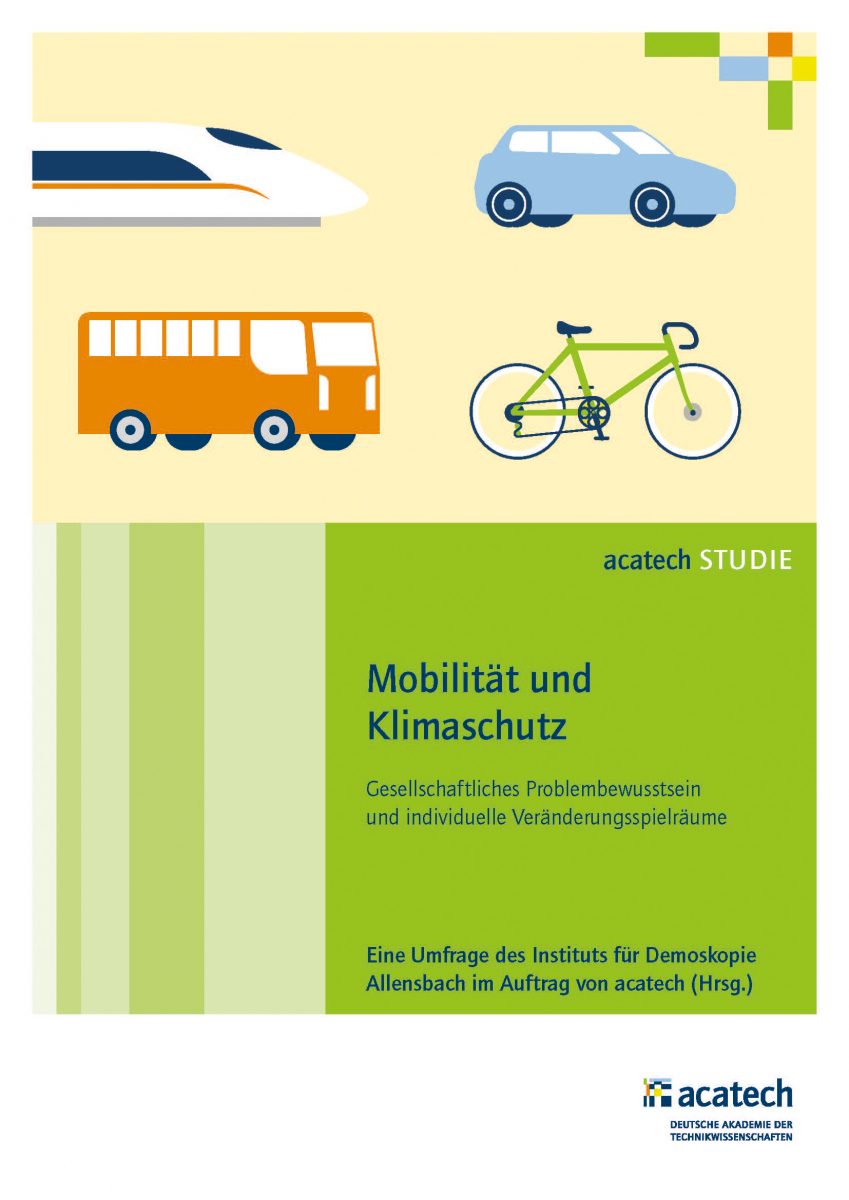
How do people get about in Germany today and what do they expect from tomorrow’s mobility system? The acatech STUDY Mobilität und Klimaschutz (Mobility and Climate Protection) seeks to provide answers to these questions. In a representative survey carried out on behalf of acatech in spring 2019, the Allensbach Institute for Public Opinion Research (IfD) analysed mobility needs and patterns among the general public. The STUDY reveals growing concerns about climate change and differing attitudes towards future mobility modes and technologies such as electric mobility, automated driving and carsharing. It also highlights a desire for mobility solutions that are tailored to the different mobility behaviours and needs of people living in urban and rural areas.
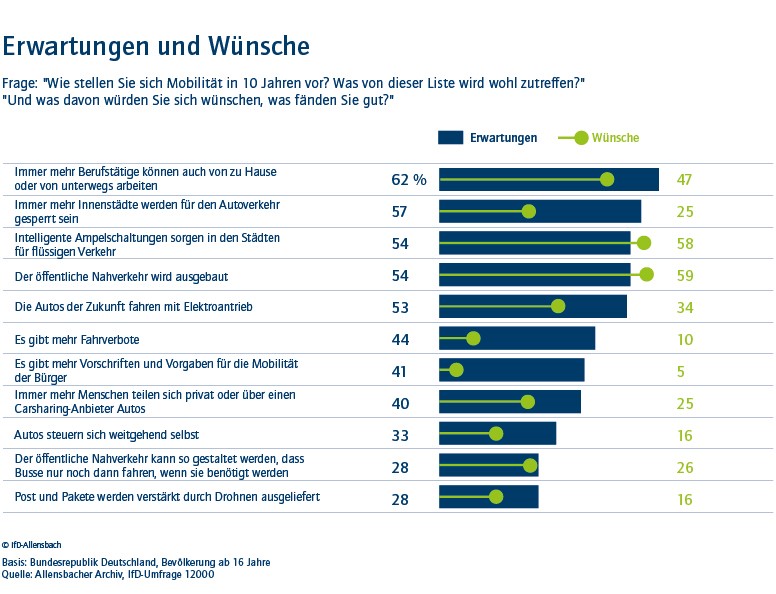
A target scenario for mobility post-2030
In the acatech project “New autoMobility II”, an interdisciplinary project group outlines a systemic target scenario for automated and connected transport and traffic post-2030. It describes a system that is geared towards users’ individual needs and is consistent with the vision of attractive urban and rural living spaces. It also examines the role of local government, together with a number of social questions. The STUDY was launched by acatech in September 2019 at the IAA International Motor Show in Frankfurt.


Vorher: Keine ökonomische
Verkehrssteuerung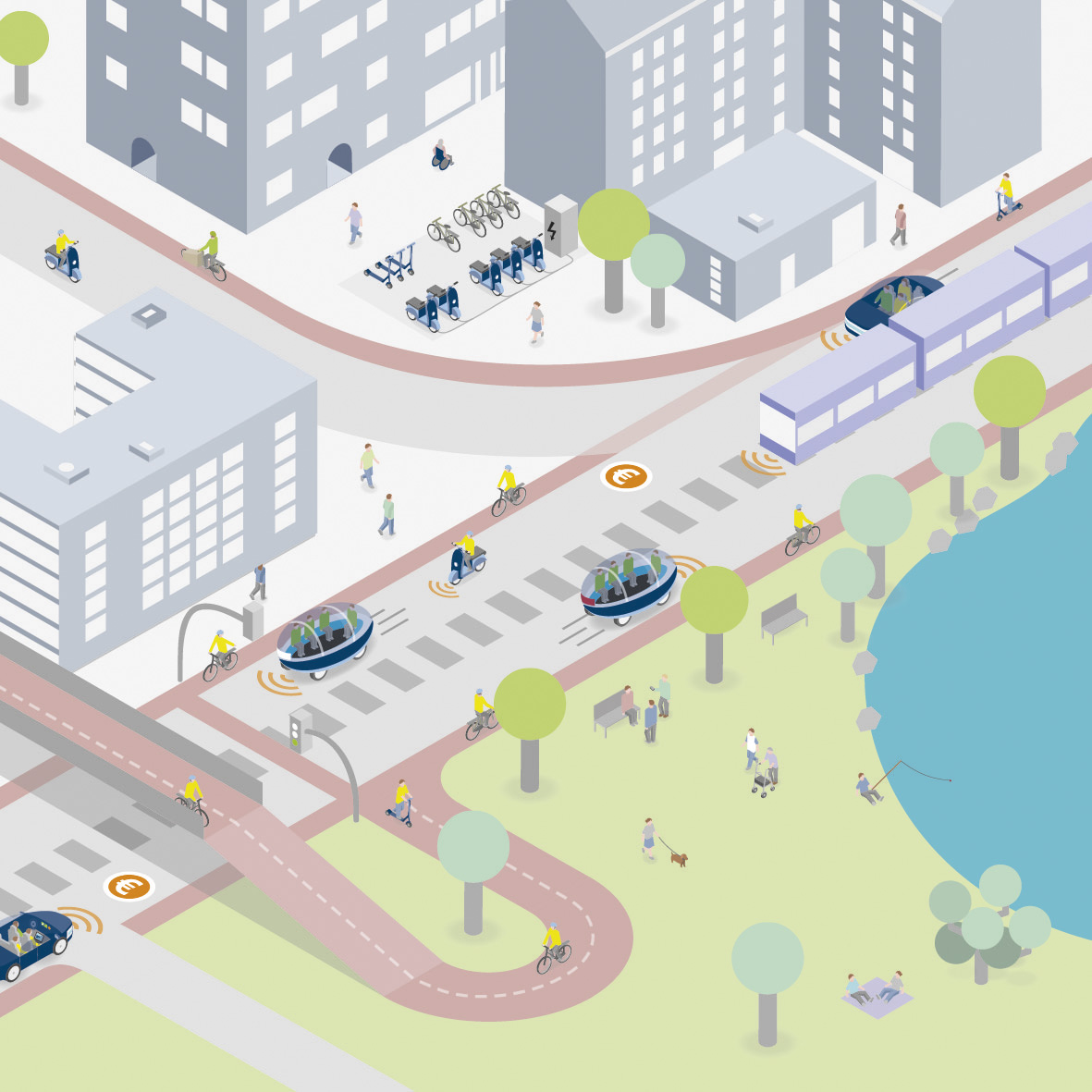
Nachher: Verkehrssteuerung
durch Mobility Pricing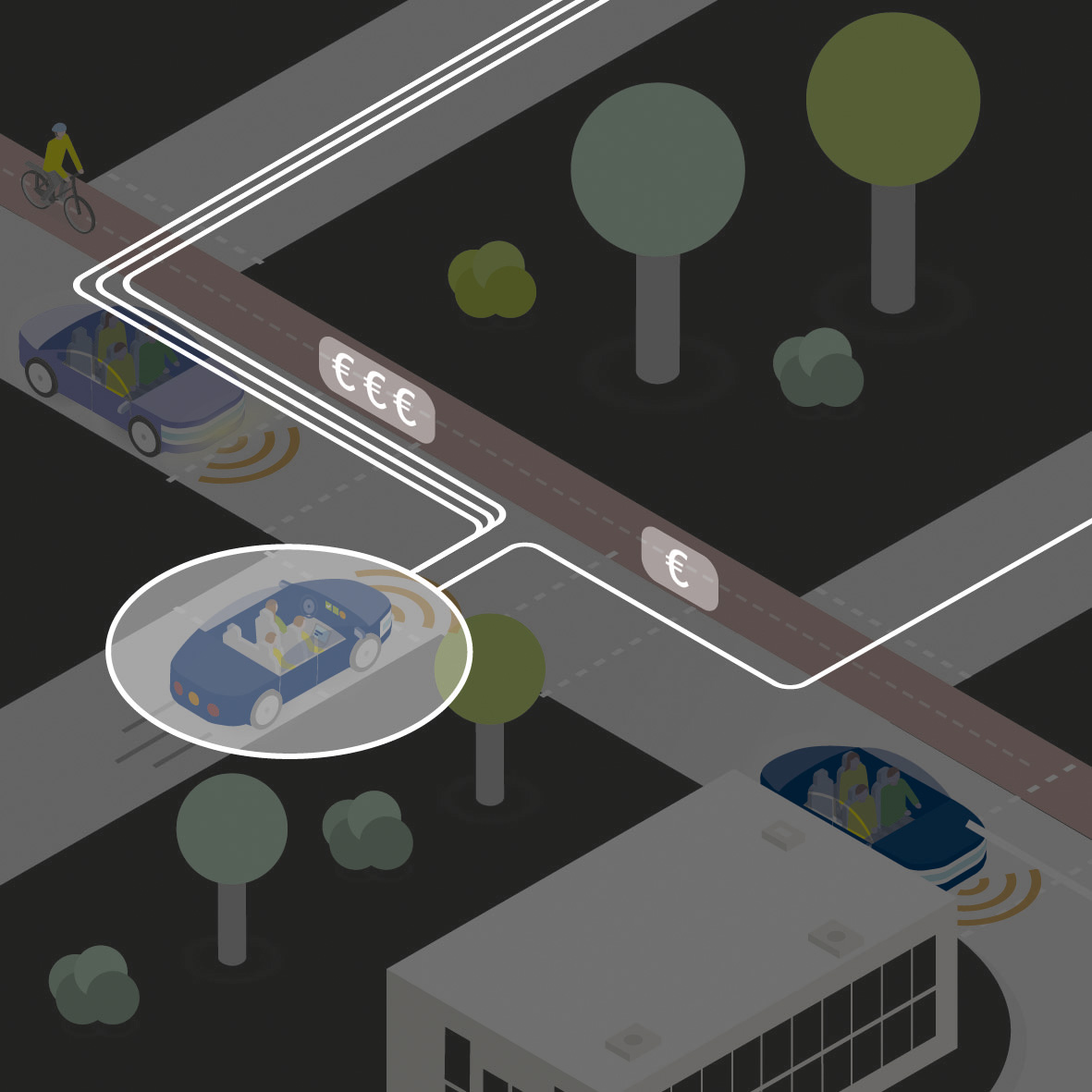
Dynamische Preisfindung
„New advances in connectivity and automation will help us to get much better at combining individual mobility – be it driving, cycling or walking – with public transport and new mobility services. Smart mobility will be good for the environment and climate, use less space and improve quality of life. It also has huge economic potential.“
Karsten Lemmer, “New autoMobility II” project leader and Executive Board Member for Energy and Transport at the German Aerospace Center (DLR).
The road towards the future of mobility
The National Platform Future of Mobility (NPM) generates momentum on the topic of mobility and is the main advisor to the Federal Government on this issue. The NPM develops strategies and recommendations for creating affordable, sustainable and climate-friendly mobility in Germany while at the same time securing competitiveness and jobs.
In 2019, the NPM’s six working groups – comprising around 240 experts from government, the private sector, industry associations, research institutions and NGOs – produced a total of eleven interim reports that identify areas where action is needed and make recommendations concerning the next steps. In December, the NPM published its first progress report, which presents an overview of the future of mobility and provides a detailed picture of the work carried out to date. It concludes that the know-how and solutions already exist, but that their implementation is becoming a matter of increasing urgency.
Further information
Projects
Publications
News items
- Schülerinnen und Schüler informieren sich über acatech*
- Mobilität der Zukunft gemeinsam gestalten*
- acatech am Dienstag: Umsteigen aber wie? – Mobilität in der Stadt von morgen*
- Unterhausdebatte zur Mobilitätswende*
- Verkehr 2030: So kommen wir besser und umweltfreundlicher ans Ziel*
- acatech am Dienstag: Volles Haus bei Diskussion über nachhaltige Mobilität in Landshut*
- Wie wir 2030 unterwegs sind: acatech Studie skizziert Zukunftsbild der vernetzten Mobilität*
- Öffentlicher Dialog in Landshut: Nachhaltige Mobilität in Stadt und Land*
- Gespräch in der Garage: Ein acatech am Dienstag zum Thema Elektromobilität*
- Schülerinnen und Schüler zu Gast bei acatech*
- Mobility survey: Public wants solutions that are more climate-friendly and tailored to urban and rural areas
- Automatisiertes Fahren und vernetzte Mobilität: Bundestagsabgeordnete diskutieren bei acatech*
* Content only available in German.
Biotechnology
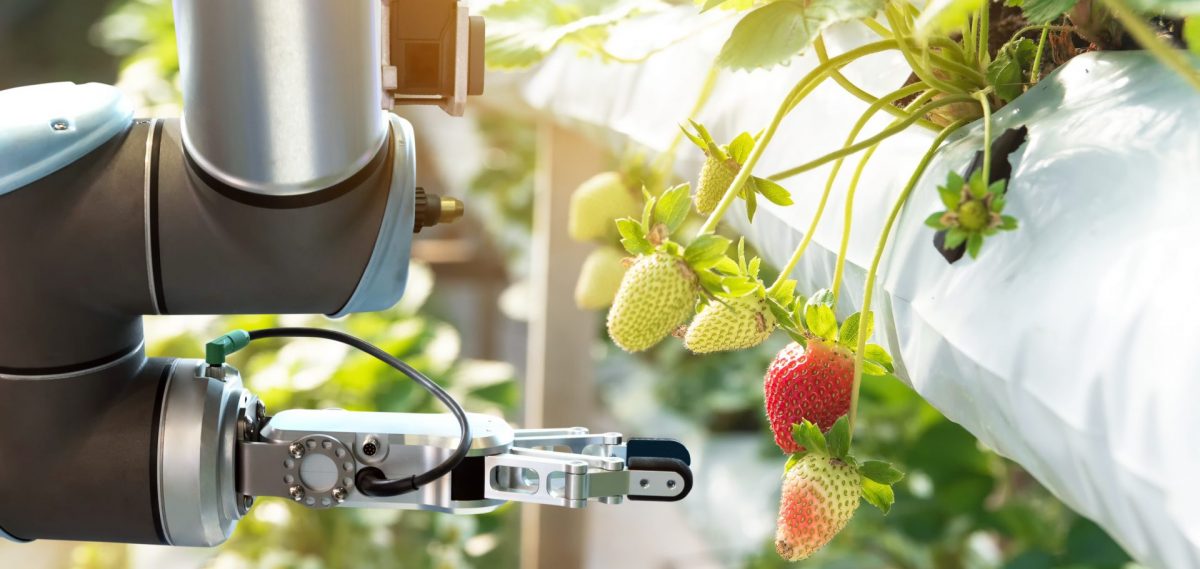
Biotechnology forms a bridge between the life sciences and engineering. Taking living systems as a model, insights and processes from the life sciences are applied to engineering methods, products and services. Digitalisation, automation and miniaturisation are among the key drivers of the dynamic growth in this technology field.
The use of biotechnology techniques could lead to significant advances in climate and environmental protection and the production of sustainable (raw) materials, and also has considerable potential in the fields of health and nutrition. Biotechnology will thus play a key role in delivering the United Nations Sustainable Development Goals (SDGs). Alongside these opportunities, however, biotechnology also raises a number of ethical questions that make open, dialogue-based technology communication particularly important in this area.
“We must promote an open debate among policymakers and the public on existing industrial applications and potential future developments. Ultimately, biotechnology’s success will be determined by the benefits it offers and by user acceptance.”
Dieter Spath, acatech President
„A biotech world? The Academy Day in Hamburg “
The acatech Academy Day was devoted to biotechnology, one of the key technologies of the 21st century. The keynote was given by the First Mayor of Hamburg, Peter Tschentscher. The participants in the panel discussion unanimously agreed that the public must be included from an early stage and provided with comprehensive, impartial information. The huge number of different biotech applications was also highlighted. In addition to presentations on applications in healthcare, another focus was the use of biotechnology techniques in industrial production.
The Federal Government is currently developing the interministerial agenda “From Biology to Innovation” and has published a strategy paper on bioeconomy, with acatech contributing to the relevant expert discussions. Biotechnology is also the theme of Germany’s Science Year 2020, in which the Academy is participating in various ways including a HORIZONS publication on Sustainable Agriculture.
At the end of 2019, acatech published the DISCUSSION paper “Materials Research: Inspired by Nature – Innovation Potential of Biologically Inspired Materials”, which was funded by the Federal Ministry of Education and Research. The paper describes the innovation potential of bio-inspired materials in everything from chemistry, energy and medicine to robotics and art and design. It shows that bio-inspired materials can play an important role in Germany’s development as a centre of research and technology over the coming years. Germany’s very strong position in this field compared to other countries around the world must now be translated into industrial value creation.
Overall, biotechnology can claim to be one of the most dynamic technology fields of our times. While Germany is strong in science and research, the challenges include translating knowledge into applications, providing sufficient growth finance for biotech enterprises and ensuring public acceptance of the technology.
Further information
Projects
Publications
News items
- New acatech HORIZONS publication on sustainable agriculture launched to coincide with Agricultural Summit
- acatech HORIZONTE trifft Interaktionsdesign: Der Nachhaltigkeitsfinder*
- Ist CRISPR das ultimative Tool?*
- Vorhandenes Wissen nutzen – Austausch zwischen ökologischer und konventioneller Landwirtschaft*
- Nachhaltige Landwirtschaft aus sozialethischer Perspektive – Ein Interview mit Markus Vogt*
- Nitrat im Grundwasser – ein Problem, das uns alle angeht*
- acatech am Dienstag: Welche Gemeinsamkeiten verbinden Bauhaus und Synthetische Biologie?*
- Innovationspotenzial biologisch inspirierter Material- und Werkstoffforschung*
- Lichte Ideen zum Ferienbeginn: Schülerseminar und acatech am Dienstag zu Künstlicher Photosynthese*
- Neue Möglichkeiten und ethische Grenzen der Gen-Schere CRISPR-Cas*
- Akademietag: Warum Biotechnologie immer wichtiger wird*
- Wege in eine umweltschonende Stickstoffwirtschaft*
- Künstliche Photosynthese: Besser als die Natur?*
- Bioökonomie – mehr als „dasselbe in Grün“?*
- Künstliche Photosynthese – die Mondlandung des 21. Jahrhunderts?*
* Content only available in German.
Economy, Education & Work
In 2019, the Academy’s activities in the field of Economy, Education & Work focused on strengthening German industry and innovation at various levels.
Digital sovereignty for Germany and Europe
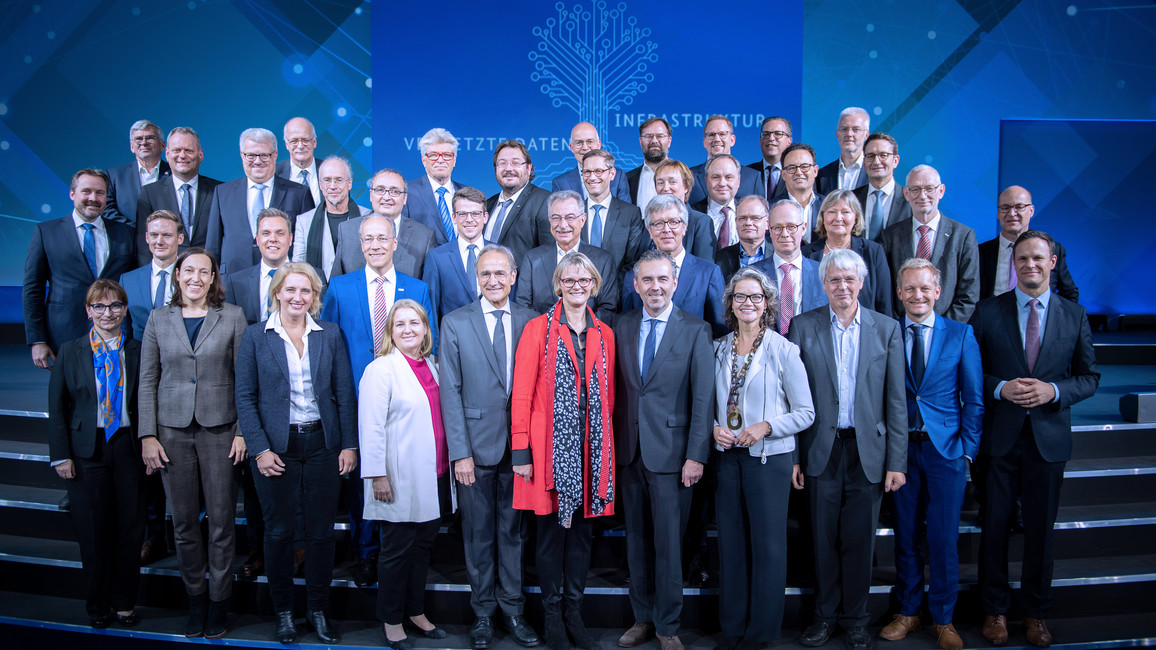
acatech was closely involved in the development of the GAIA-X concept for creating an open, sovereign European data infrastructure, which was presented by the Federal Government and its partners from science and industry at the 2019 Digital Summit in Dortmund. acatech’s contribution centred on describing the vision and the benefits for users, as well as compiling use cases from different areas of application. The Plattform Lernende Systeme contributed a use case on AI-based healthcare applications.
“While artificial intelligence can potentially help Germany to maintain its global leadership in the B2B sector, this will require Germany and Europe to join forces by pooling data and industry expertise. We need common European data areas where businesses can share their data pre-competitively without concern and in accordance with European legal standards and values.”
acatech President Karl-Heinz Streibich
Growth finance
In a joint project with KfW and Deutsche Börse led by Ann-Kristin Achleitner (Technical University of Munich and acatech Executive Board member) and Reiner Braun (Technical University of Munich), acatech broke new ground by bringing together a range of actors from the financial sector with high-tech growth companies, academia and industry. Around 60 experts contributed to a representative overview of current opinion and helped to formulate a series of recommendations for strengthening the growth finance ecosystem in Germany and Europe. The recommendations of the STUDY “Enhancing innovation in Germany by strengthening the growth finance ecosystem” are not confined to the mobilisation of traditional venture capital. They also highlight alternative forms of financing and in particular the interfaces between high-tech growth companies, established businesses and academic institutions. These interfaces are one of the keys to strong growth finance and thus to building a strong competitive position in Germany in the field of industrial digitalisation.
This project marks an important step by acatech to increase the involvement of innovative tech-based startups in the Academy’s work and strengthen its policy advice with regard to startup financing. The topic of growth finance was widely reported in the media, including an article by Reiner Braun and Thomas Lange, a front-page story in the Handelsblatt and interviews with Ann-Kristin Achleitner and Hauke Stars (Deutsche Börse).
“The lack of adequate growth finance remains one of the key weaknesses of Germany’s innovation system. Initiatives to help companies raise capital during their growth phase would result in more companies being floated on the German stock exchange, make it more attractive to invest in companies, and thus create a larger domestic venture capital scene.”
Ann-Kristin Achleitner, acatech Executive Board member and head of the project “Enhancing innovation in Germany by strengthening the growth finance ecosystem”
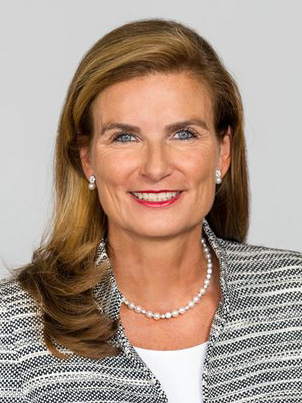
Promoting STEM education
A stronger focus on the effectiveness of measures to promote STEM education is the main recommendation of the 2019 Barometer of Young Talents in the STEM subjects. This key trendand on STEM education in Germany has been published by acatech and the Körber Foundation since 2014. acatech is also co-founder and member of the Nationales MINT Forum (NMF – German STEM Forum), which brings together 30 national institutions in order to promote STEM education. In addition, acatech has organised regular STEM round tables in conjunction with the Siemens Stiftung over a number of years.
The 7th National STEM Summit in 2019 addressed one of the key demands of the Nationales MINT Forum: a national alliance for quality and effectiveness to help the STEM community establish a process for developing quality criteria and measures to improve the effectiveness of STEM initiatives. One possible way of implementing this proposal would be through the BMBF’s STEM action plan.
“Without STEM education, it will be impossible to succeed in strategic areas such as the digital transformation, the biotech revolution or the energy and mobility transitions. We need people who are qualified in the STEM subjects.”
acatech President Dieter Spath
The acaLAB – Young Talents @acatech workshop on “Human Enhancement and the Future of Learning” was held in conjunction with the Jacobs Foundation in Stuttgart in January 2019, with the aim of involving young talents and addressing non-mainstream topics at acatech. The 30 young participants explored some of the issues that “human enhancement” raises for society and the future of education. Plans are currently afoot for a follow-up event on this topic with representatives of science, industry, acatech Senate companies, startups, civil society and the acaLAB participants.
Lifelong learning
The digital transformation is changing the nature of work and the demands on employees and employers. At the same time, the greater flexibility and complexity of work processes requires companies to acquire new competencies and employees to learn new skills. acatech and the European School of Management and Technology (ESMT) Berlin have developed the Massive Open Online Course (MOOC) “Technology, Strategy and Leadership” in order to highlight the opportunities and organizational approaches that exist in this context, with experts in the field providing basic information relevant to participants from all industries.
The future of learning also provides the focus for the HR Working Group – Forum for HR Directors on the Future of Work. Steffi Robak (Leibniz University Hannover) and acatech Members Isabel Welpe and Manfred Prenzel acted as academic advisors to the “Lifelong Learning” follow-up project, in which experts from the participating technology and service companies developed concepts for upskilling and professional development using the latest technology.
As the host of the HR Working Group meetings, acatech President Dieter Spath ensured that its work was communicated to policymakers and the public through his active involvement in the Study Commission on “Vocational Training in the Digital Work Environment”.
Further information
Projects
Publications
News items
- Schülerinnen und Schüler informieren sich über acatech*
- PISA-Studie: acatech Mitglied und PISA-Beauftragte Kristina Reiss kommentiert die Ergebnisse*
- Arbeit mit Zukunft – Schlüsselfaktoren für die digitale Transformation*
- WGAB-Tagung in München: Wie Weiterbildung an den technologischen Fortschritt angepasst werden kann*
- Workshop-Teilnehmende erarbeiten Zukunfts-Kompetenzbild für Lehrerinnen und Lehrer*
- Schülerinnen und Schüler zu Gast bei acatech*
- MINT Nachwuchsbarometer 2019: Wie MINT-Kompetenzen bei Kindern und Jugendlichen gestärkt werden können*
- Die digitale Transformation managen: acatech startet zur Hannover Messe neuen MOOC*
- acatech, KfW und Deutsche Börse legen Handlungsempfehlungen zur Stärkung der Wachstumsfinanzierung vor*
- „Risikokapital ist nicht das einzige Finanzierungsinstrument“*
- MINT-Roundtable in München: Wie lässt sich Technikbildung in Schule und Hochschule verbessern*
- Erstes Nationales Kompetenz-Monitoring vorgestellt*
- #acaLAB: the future of learning
- Debatte über Roboter und Lernende Systeme in der Arbeit – acatech am Dienstag gastiert in Bamberg*
* Content only available in German.
Innovation
Evidence for a proactive innovation policy
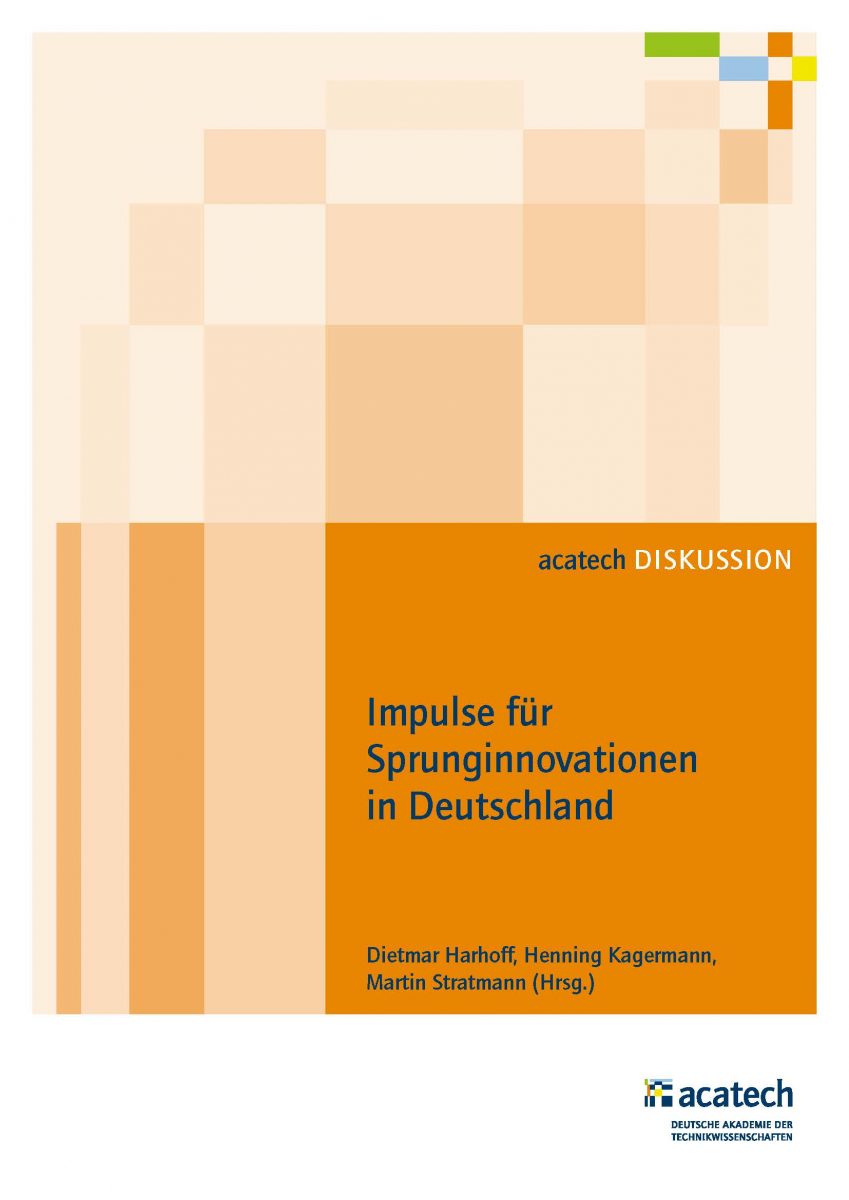
Organised by acatech, the Innovation Dialogue between the Federal Government, industry and science analyses new developments and discoveries in science and research and advises the Federal Government on all innovation policy matters. In 2019, the first steps were taken towards implementing the recommendations of the Innovation Dialogue and acatech DISCUSSION paper on “Impulse für Sprunginnovationen in Deutschland” (Promoting Breakthrough Innovations in Germany), when Rafael Laguna de la Vera was appointed founding director of the Agentur für Sprunginnovationen (Agency for Breakthrough Innovations) and Leipzig was chosen as the location of the Agency’s headquarters.
acatech also carries out a technology theme survey to identify cutting-edge fields and disruptive technologies that are of interest to acatech’s Members and Senate companies. The results of the survey are then discussed with the relevant experts. Through this process, the acatech Executive Board chose “quantum technology”, “urban mining/circular economy” and “advanced systems engineering” as the three themes to be addressed by acatech HORIZONS publications in 2020 and 2021.
Providing a glimpse into the future
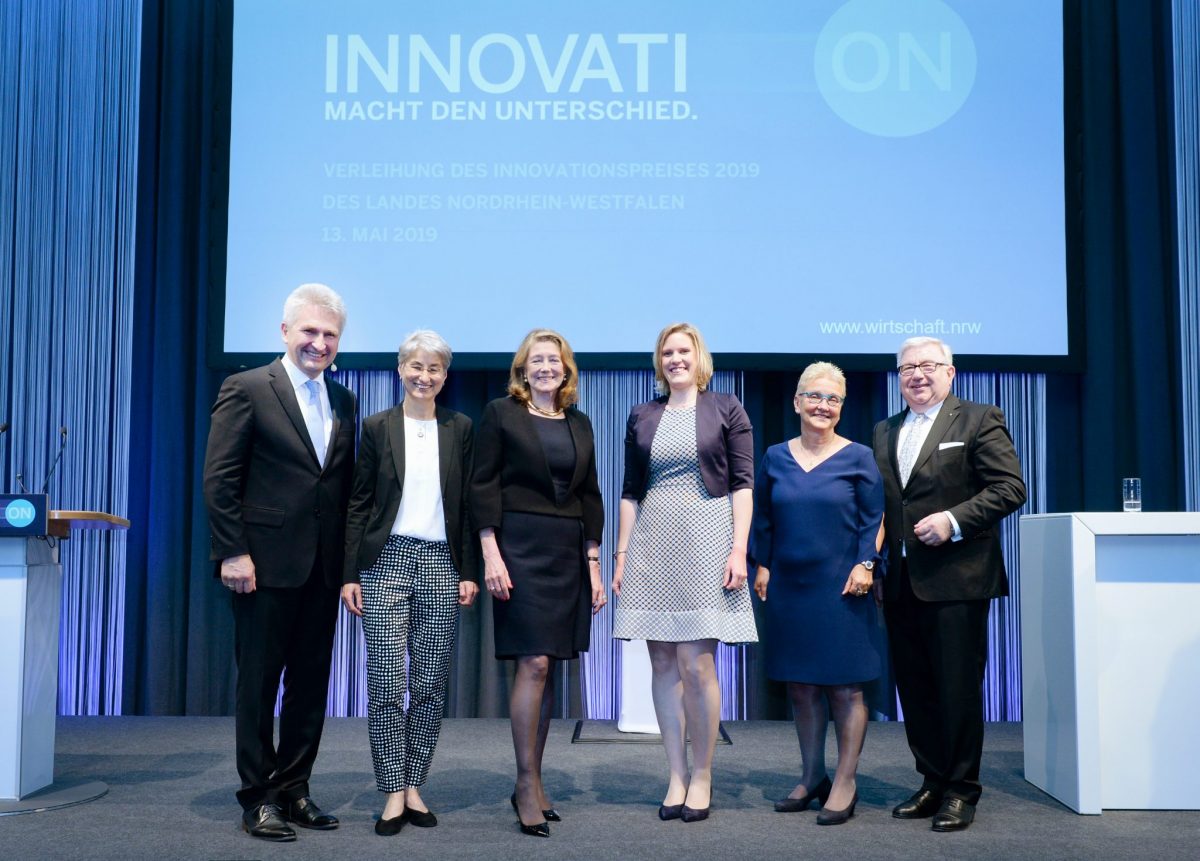
Innovation comes about when different perspectives meet and interact to create new ideas. Helga Rübsamen-Schaeff, Brunhilde Wirth and Valentine Gesché were able to turn their ideas into reality. In May 2019, the three researchers were awarded the North Rhine-Westphalia Innovation Award by a jury chaired by acatech President Dieter Spath. At the prizegiving ceremony in Düsseldorf’s K 21 art gallery, the importance of innovation and entrepreneurship was highlighted by the Minister-President of North Rhine-Westphalia, Armin Laschet, and North Rhine-Westphalia’s State Minister for Economic Affairs, Innovation, Digitisation and Energy, Andreas Pinkwart. Prize money totalling €150,000 makes the Innovation Award the second most valuable award of its kind in Germany, after the German President’s “Deutscher Zukunkftspreis” Award for Innovation in Science and Technology.
In Bavaria, acatech President Dieter Spath is involved in the Zukunftsrat der Bayerischen Wirtschaft (Council on the Future of the Bavarian Economy). The Council’s report “TechCheck 2019. Erfolgsfaktor Mensch” (TechCheck 2019. The Human Success Factor) identifies the future technologies that will have a major economic and social impact in Bavaria. At a national level, acatech Executive Board members Armin Grunwald and Martina Schraudner were appointed to the “Zukunftskreis” strategic group that forms part of the Federal Ministry of Education and Research’s new “VORAUS:schau” foresight process.
Further information
Projects
- Forschungsbeirat der Plattform Industrie 4.0*
- acatech HORIZONTE: Nachhaltige Landwirtschaft*
- acatech HORIZONS: Cyber Security
- acatech HORIZONS: Blockchain
- The Innovation Dialogue between the Federal Government, industry and science
- Innovationskraft in Deutschland verbessern – Ökosystem für Wachstumsfinanzierung stärken*
Publications
- acatech HORIZONTE: Nachhaltige Landwirtschaft*
- Key themes of Industrie 4.0. Research and development needs for successful implementation of Industrie 4.0
- Enhancing innovation in Germany by strengthening the growth finance ecosystem
- Framework Conditions for the Future of Materials. Analysis and recommendations
- Faster to Market Success. Memorandum of the Plattform Industrie 4.0 Research Council for a More Agile and Flexible Innovation System in Germany
- Innovationskraft in Deutschland verbessern: Ökosystem für Wachstumsfinanzierung stärken*
News items
- Nachhaltigkeit in der Lebensmittelherstellung – Ein Gastbeitrag von Stephan Becker-Sonnenschein*
- Die Welt im Wandel: Die Perspektive aus dem All – Ein Gastbeitrag von Hansjörg Dittus*
- Pünktlich zum Agrargipfel: Neue Ausgabe der acatech HORIZONTE zum Thema Nachhaltige Landwirtschaft erschienen*
- Bundesweite Aktionstage Netzpolitik und Demokratie: acatech richtet Cyber Security-Fortbildung für Lehrkräfte aus*
- Dynamik der digitalen Transformation macht Vorausschau und Technologieplanung immer wichtiger*
- Innovationspreis NRW startet: Bis 24. November können Forschungsleistungen nominiert werden*
- acatech am Dienstag: Kann die Blockchain-Technologie demokratische Prozesse verbessern?*
- Industrie 4.0: Forschungsbeirat nennt die wichtigsten Themenfelder der nächsten Jahre*
- acatech publishes English version of its STUDY on “Strengthening the growth finance ecosystem”
- acatech POSITION: Werkstoffe sind systemrelevant und brauchen faire Wettbewerbsbedingungen*
- acatech und die Bayerische Stiftung Amerikahaus veranstalten Blockchain-Herbst*
- Cybersicherheit und Gesellschaft: Wieviel Souveränität brauchen Deutschland und Europa?*
- Nicht die Nutzer, sondern die Branche muss für die Onlinesicherheit sorgen – Ein Gastbeitrag von Stephan Micklitz*
- Digitalisierung braucht Cybersicherheitsforschung – Ein Gastbeitrag von Michael Waidner*
- Cyber Security für jeden: neue HORIZONTE-Publikation ist da*
- acatech Studie zeigt, wie Finanzierungslücke für Wachstumsunternehmen geschlossen werden kann*
- Zweiter Innovationsdialog der 19. Legislaturperiode: Impulse für das deutsche Innovationssystem durch den Wettbewerb mit China sowie Plädoyer für Stärkung der Wasserstofftechnologien am Standort Deutschland*
- Drei Forscherinnen mit NRW-Innovationspreis 2019 ausgezeichnet
- acatech am Dienstag: Experten plädieren für Technologieoffenheit in der Industriepolitik*
- acatech, KfW und Deutsche Börse legen Handlungsempfehlungen zur Stärkung der Wachstumsfinanzierung vor*
- „Risikokapital ist nicht das einzige Finanzierungsinstrument“*
- #acaLAB: the future of learning
* Content only available in German.
Dialogue
Innovation Dialogue
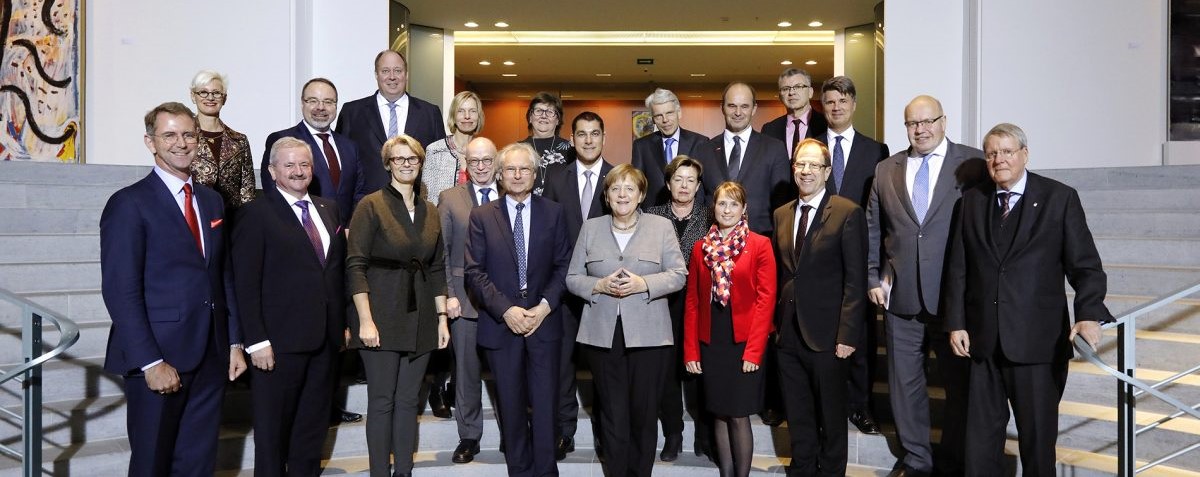
Federal Chancellor Angela Merkel (front row, 5th from left) receives the participants in the Innovation Dialogue at the Federal Chancellery (front row, 3rd from left, Anja Karliczek, Federal Minister of Education and Research; back row, 3rd from left, Helge Braun, Head of the Federal Chancellery and Federal Minister for Special Tasks; back row, far right, Peter Altmaier, Federal Minister for Economic Affairs and Energy). © Federal Government/Jochen Eckel
Twice a year, the Federal Chancellor, the Federal Minister of Finance, the Federal Minister for Economic Affairs, the Federal Minister of Education and Research and the Head of the Federal Chancellery meet with representatives of science, industry and civil society to discuss cutting-edge technologies and the innovation policy framework. The 17-member steering committee is headed by Chairman of the acatech Board of Trustees, Henning Kagermann, while several of the Academy’s scientific Members and members of the acatech Senate also contribute expert advice to the Federal Government. The Innovation Dialogues between the Federal Government, Industry and Science are organised by a project office at acatech which also supplies background documentation on the relevant topics, ensuring a common factual basis for the discussions.
Stimulating the German innovation system
The second Innovation Dialogue of the current parliament was held in June 2019. Participants discussed the opportunities and challenges for innovation in Germany presented by China’s growing economic importance and strength in innovation. They stressed that future competition with China must not turn into a zero-sum game and that China’s rapid rise also presents opportunities for growth and greater prosperity in Germany. Although international competition in the field of innovation has heightened in recent years, German companies and researchers have still been able to engage in successful, long-term cooperation with Chinese partners. Clear strategies are needed to build on this cooperation going forward.
The Innovation Dialogue also discussed the potential of hydrogen as an energy source that could be used across different sectors – particularly the industrial, mobility and energy supply sectors – and play a key role in fuelling German industry. The discussion highlighted the important contribution to climate protection that could be achieved through the development of a hydrogen economy.
Second-generation quantum technologies
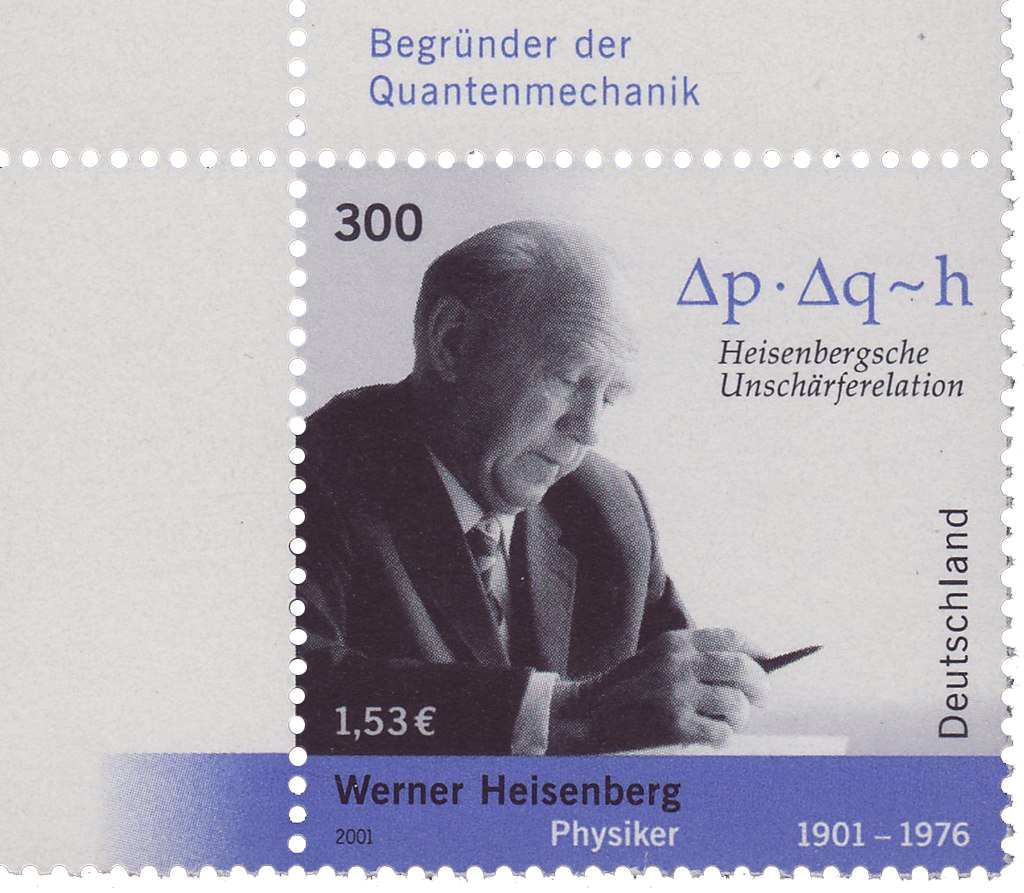
In January 2020, the members of the Innovation Dialogue discussed the potential of second-generation quantum technologies for Germany. The meeting focused on the policy measures needed to enable and support the successful translation of Germany’s outstanding pure research into value-added products. The development of a globally competitive quantum technology ecosystem in Germany will call for long-term policy support in this area. The Innovation Dialogue participants also stressed that early commitment to the commercialisation of new quantum technologies will be key to securing the technological sovereignty of Germany and Europe.
Further information
News items
- Zweiter Innovationsdialog der 19. Legislaturperiode: Impulse für das deutsche Innovationssystem durch den Wettbewerb mit China sowie Plädoyer für Stärkung der Wasserstofftechnologien am Standort Deutschland*
- Dritter Innovationsdialog der 19. Legislaturperiode: Innovationspotenziale der Quantentechnologien der zweiten Generation*
* Content only available in German.
acatech HORIZONS
In the acatech HORIZONS series, the Academy explores technology fields that are already looming large on the horizon, but where there is still some uncertainty about their potential impacts. The HORIZONS publications in 2019 addressed two pressing topics: Cybersecurity and Sustainable Agriculture. acatech’s HORIZONS publications aim to highlight opportunities to shape a particular technology’s development, inform people about its risks and problems, and stimulate debate. They explicitly set out to engage with the public by employing different types of events to address specific interest groups, depending on the topic in question.
Members of the Cybersecurity project group held separate discussions with German Bundestag deputies, with members of the Bavarian state parliament and with interested members of the public at an “acatech am Dienstag” (acatech on Tuesday) event. The Academy also produced a podcast aimed at the online community. Furthermore, in a project with the Munich University of Applied Sciences, students on the Technical Writing and Technical Communication course developed a variety of multimedia communication resources on the topic of cybersecurity. acatech also organised a continuing education event for teachers in conjunction with the Bayerische Landeszentrale für politische Bildungsarbeit (Bavarian State Centre for Political Education – BLZ) in order to raise awareness about this topic in schools. The content for the learning materials produced by the BLZ was based on the HORIZONS publication.
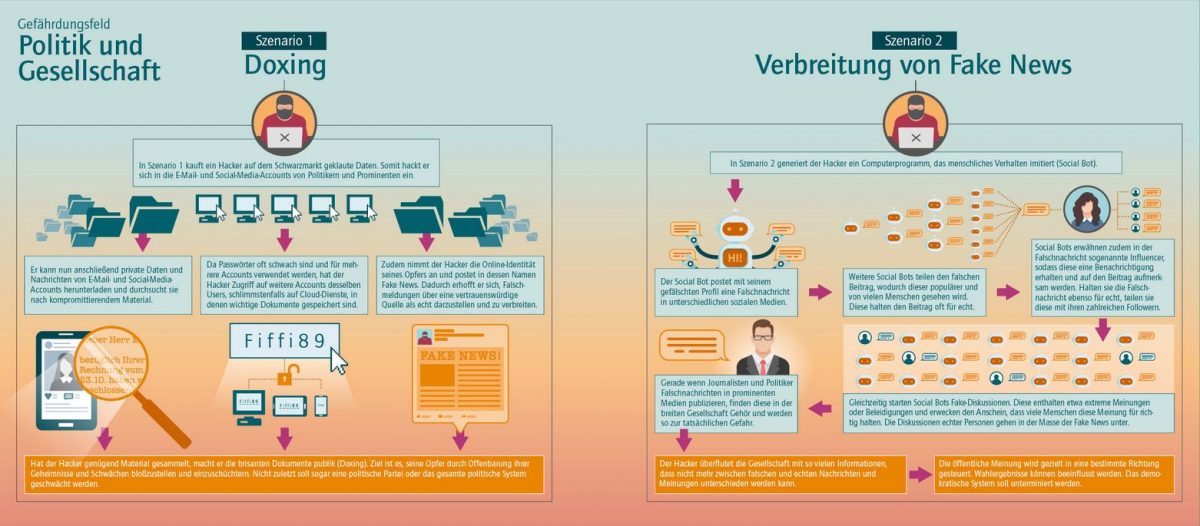
The acatech HORIZONS publication on Sustainable Agriculture was published the day after the “Agricultural Summit” took place at the Federal Chancellery on 2 December 2019. The Academy held a launch event at the Münchner Künstlerhaus where over a hundred guests discussed how to resolve the conflicts between government, agriculture and the public. The “Nachhaltigkeitsfinder” (Sustainability Finder) was specially developed for the event in order to make these conflicts more tangible. Two days later, an event with deputies of the Bavarian state parliament organised in conjunction with the Bayerische Landeszentrale für politische Bildungsarbeit (Bavarian State Centre for Political Education – BLZ) addressed how to embed the topic of sustainable agriculture in education. A similar event for members of the German Bundestag followed in January 2020.
Blockchain, the topic of the first HORIZONS publication, also remained on the agenda in 2019. In conjunction with the Amerikahaus Munich – Bavarian Center for Transatlantic Relations, acatech organised a series of four events on “Blockchain in Society and National Security” that focused on raising awareness about blockchain technology and its potential applications in different sociopolitical, economic and security policy areas. The undoubted highlight was TechCamp: “TechCamp: 10 Minutes to the Valley – Blockchain Solutions for a Better and More Secure Society”, a competition in which students were asked to come up with the best blockchain project.
Further information
Projects
News items
- Künstliche Intelligenz im Wissenschaftsjahr 2019 – ein Ausblick*
- Cybersicherheit und digitale Souveränität: Wenn die Interessen von Staat, Herstellern und Nutzern aufeinanderprallen*
- Cyber Security und digitale Souveränität – Im Gespräch mit Jörn Müller-Quade (KIT)*
- acatech im Bayerischen Landtag: Cyber Security – Wie wird der bayerische Mittelstand sicherer?*
- Ratschläge zum Schutz persönlicher Daten von IT-Experte Alexander von Gernler*
- Denn ohne Sicherheit ist keine Freiheit – Ein Gastbeitrag von Thomas Tschersich*
- Cyber Security: Der Staat im Spagat zwischen Schutz und Ethik – acatech am Mittag im Deutschen Bundestag*
- acatech HORIZONTE gehen in die vierte Runde und widmen sich dem Thema Künstliche Intelligenz in der Industrie*
- Cyber-Attacken: Was wir aus den Angriffen in der Vergangenheit lernen können*
- Cyber Security für Jeden – Studierende der Hochschule München erarbeiten Konzepte zur Aufklärung vor Gefahren im Internet*
- Cyber Security für jeden: neue HORIZONTE-Publikation ist da*
- Digitalisierung braucht Cybersicherheitsforschung – Ein Gastbeitrag von Michael Waidner*
- Nicht die Nutzer, sondern die Branche muss für die Onlinesicherheit sorgen – Ein Gastbeitrag von Stephan Micklitz*
- Cybersicherheit und Gesellschaft: Wieviel Souveränität brauchen Deutschland und Europa?*
- acatech und die Bayerische Stiftung Amerikahaus veranstalten Blockchain-Herbst*
- acatech am Dienstag: Kann die Blockchain-Technologie demokratische Prozesse verbessern?*
- Nitrat im Grundwasser – ein Problem, das uns alle angeht*
- HORIZONTE Podcast: Wie gefährlich ist Cyberkriminalität?*
- Nachhaltige Landwirtschaft aus sozialethischer Perspektive – Ein Interview mit Markus Vogt*
- Vorhandenes Wissen nutzen – Austausch zwischen ökologischer und konventioneller Landwirtschaf*
- Bundesweite Aktionstage Netzpolitik und Demokratie: acatech richtet Cyber Security-Fortbildung für Lehrkräfte aus*
- acatech HORIZONTE trifft Interaktionsdesign: Der Nachhaltigkeitsfinder*
- New acatech HORIZONS publication on sustainable agriculture launched to coincide with Agricultural Summit
- Die Welt im Wandel: Die Perspektive aus dem All – Ein Gastbeitrag von Hansjörg Dittus*
- Nachhaltigkeit in der Lebensmittelherstellung – Ein Gastbeitrag von Stephan Becker-Sonnenschein*
* Content only available in German.
European policy advice
The five European Academy Networks Academia Europaea, ALLEA, EASAC, Euro-CASE and FEAM bring together the expertise of more than a hundred academies in over forty countries across Europe. Through the SAPEA (Science Advice for Policy by European Academies)project, they are part of the European Commission’s Scientific Advice Mechanism (SAM). The SAPEA project is funded through Horizon 2020 and is coordinated by acatech.
The European Commissioners ask the seven members of the Group of Chief Scientific Advisors questions on scientific issues that are relevant to policy. For each question, the academies prepare a report that brings together the available knowledge and formulate evidence-based policy options using an independent, interdisciplinary approach based on state-of-the-art scientific information. The SAPEA Evidence Review Reports provide the scientific basis for the opinions presented to the European Commissioners by the Group of Chief Scientific Advisors. The aim is to ensure that scientific evidence plays a stronger role from an early stage in the European policymaking process.
In 2019, Evidence Review Reports were published on the topics of “Transforming the Future of Ageing”, “Making Sense of Science” and “Microplastics in Nature and Society”. A SAPEA working group chaired by acatech Executive Board member Ortwin Renn (Scientific Director at the IASS in Potsdam) addressed the topic of “Making Sense of Science for Policy Under Conditions of Complexity and Uncertainty”. The group’s work formed the basis of the policy recommendations presented to the European Commission by the Group of Chief Scientific Advisors.

The academies’ experts are also working on the topics of “Biodegradability of Plastics in the Open Environment” and “A Sustainable Food System for the European Union”. The findings will be published in 2020 and will feed into the “Farm to Fork” strategy that forms part of the European Green Deal launched by EU Commission President Ursula von der Leyen.
To mark Finland’s Presidency of the Council of the EU, in November 2019 SAPEA organised an international symposium on science advice for policy in Helsinki, in conjunction with the Finnish academies of sciences and the Prime Minister’s Office. acatech Vice-President Reinhard F. Hüttl took up the position of Chair of the Board of SAPEA in December 2019.
The SAPEA project’s partners include Euro-CASE (the European Council of Academies of Applied Sciences, Technologies and Engineering), which has been chaired by acatech Vice-President Reinhard F. Hüttl since 2013. In 2019, a report on “Energy Transitions in Europe” was published by a Euro-CASE platform chaired by acatech Member Eberhard Umbach.
Further information
Publication
International cooperation
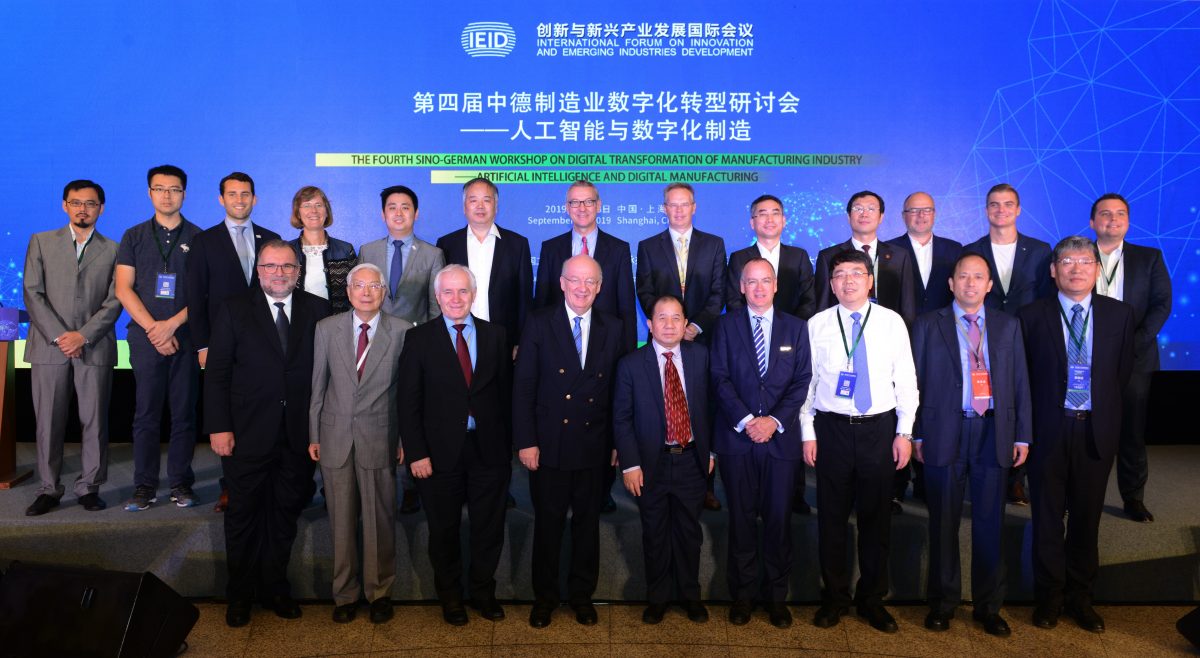
An international mindset and cooperation with other countries across the globe are key to Germany’s future success and competitiveness. In 2019, the Academy’s international cooperation activities once again focused on building and developing partnerships around the world and providing advice to policymakers and the public at a European and global level. The Fourth Sino-German Workshop in Shanghai in September 2019 was the latest in acatech’s joint workshop series with the Chinese Academy of Engineering and the Münchner Kreis. Experts from science and industry discussed Artificial Intelligence and Digital Manufacturing.
acatech continued its cooperation with the National Academy of Engineering of Korea (NAEK) through a workshop on “Industrial Artificial Intelligence in the Era of Digitalization” in Aachen. A “World Café” gave guests from both countries the opportunity to chat face to face in an informal setting.
acatech’s involvement in the international council of academies CAETS centred on the global energy supply. Contributions from Korea, Argentina, Australia, China, France, South Africa, Japan and the US have been brought together under acatech’s direction in the report “Clean Energy Technologies – Challenges and Solutions”, and under the Korean academy’s direction in the report “Solutions for High-level Penetration of Intermittent Renewable Energy”. Both reports will be published in 2020.
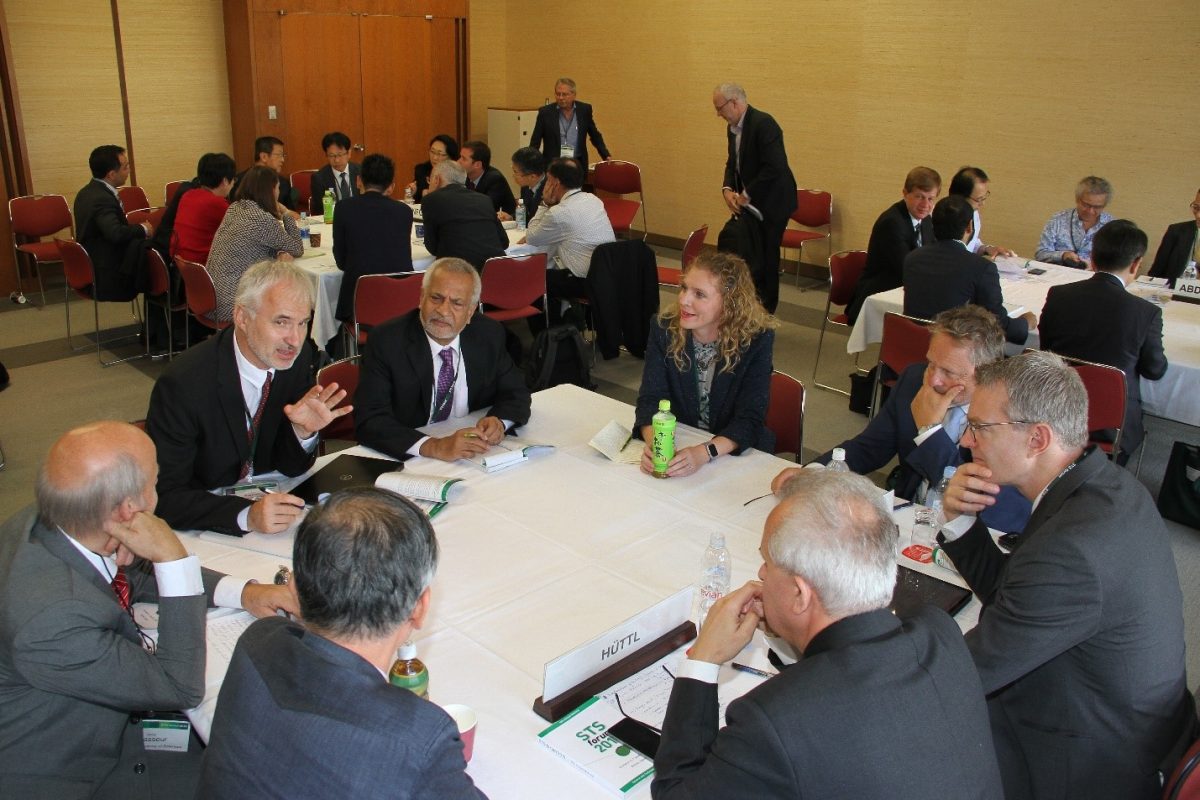
Experts from acatech also presented the results of the Academy’s work at international events such as the STS forum, the Sino-German Conference on science and technology, the international conference AI in Production and the annual conference of the international council of academies CAETS. These events provided an opportunity to network with chambers of foreign trade, ministries, the private sector, universities and research institutions, laying the foundations for new joint projects.
Further information
News itmes
- Chinesischer Botschafter und vormaliger Forschungsminister besuchen acatech*
- acatech Präsident Spath empfängt Führungstrio der irischen Akademie IAE*
- Internationale Tagung der Technikakademien: „Engineering a Better World – die nächsten 100 Jahre“*
- Science advice offers unique benefits to policymakers in tackling global challenges like climate change, say experts
* Content only available in German.
Events for parliamentarians
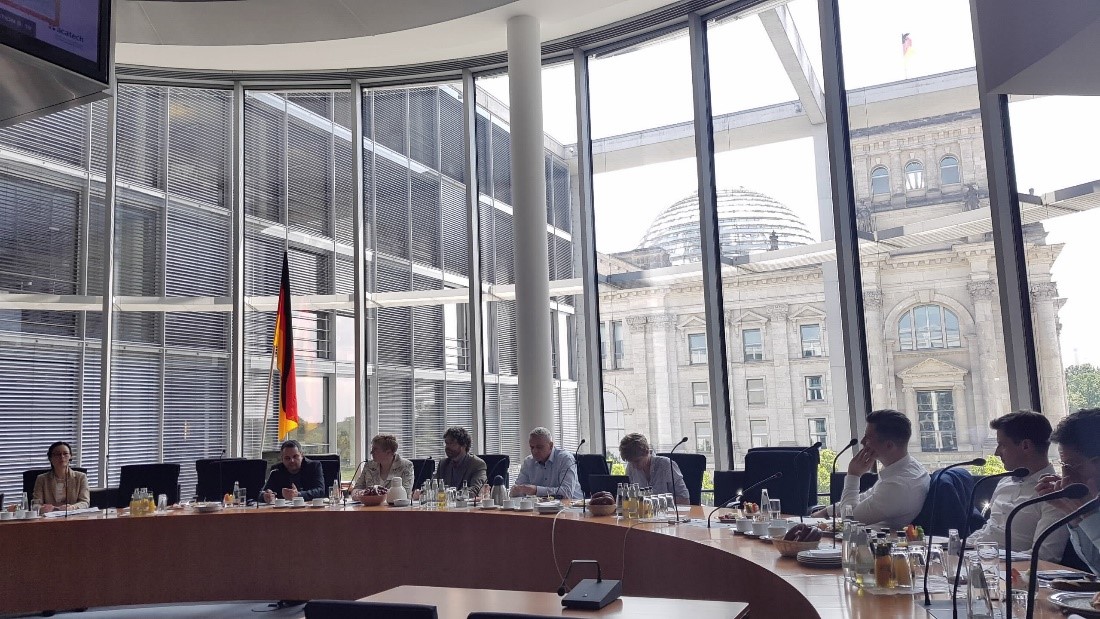
“acatech am Mittag” (Lunch with acatech) is a series of parliamentary events organised by acatech several times a year, where German Bundestag deputies discuss topical issues with experts from the Academy. At the June event on cybersecurity and the role of the State, Thomas Tschersich (T-Systems International GmbH), Jörn Müller-Quade (Karlsruhe Institute of Technology) and André Grochowy (Munich Re) spoke to deputies about digital security policy. While Jörn Müller-Quade stressed the need for government to establish binding minimum security standards for IT products and services that apply throughout the private sector, it was agreed that cybersecurity also requires informed behaviour by users.
An event on growth finance focused on how Germany and Europe can support fast-growing, innovative startups, while the New autoMobility meeting discussed a target scenario for mobility post-2030. In March, an event on how the EU governance regulation can support the energy transition considered how Germany can use its climate and energy plan to promote the energy transition and contribute to achieving the EU’s climate goals.
The joint academy project “Energy Systems of the Future” (ESYS) continued its “Energie.Wende.Punkte” event series, which is aimed at the research assistants of German Bundestag deputies and the parliamentary parties’ research spokespersons. At these discussion events, experts from the ESYS project share evidence on topical energy policy and energy industry issues. The 2019 events focused on proposals from the research community on the use of carbon pricing as a key climate protection instrument, and the potential of hydrogen as the new magic bullet for the energy transition.
Further information
Projects
Publications
- Zwischenbericht Neue autoMobilität II – Kooperativer Straßenverkehr und intelligente Verkehrssteuerung für die Mobilität der Zukunft*
- Governance for the European Energy Union
- Enhancing innovation in Germany by strengthening the growth finance ecosystem
- acatech HORIZONTE: Cyber Security*
- Über eine CO2-Bepreisung zur Sektorenkopplung: Ein neues Marktdesign für die Energiewende*
News items
- Automatisiertes Fahren und vernetzte Mobilität: Bundestagsabgeordnete diskutieren bei acatech*
- Wie kann Deutschland die Governance-Verordnung der EU effektiv für die Energiewende nutzen?*
- „Risikokapital ist nicht das einzige Finanzierungsinstrument“*
- Cyber Security: Der Staat im Spagat zwischen Schutz und Ethik – acatech am Mittag im Deutschen Bundestag*
- CO2 bepreisen, Energiesteuern reformieren – Vorschläge aus der Wissenschaft für einen ambitionierten Klimaschutz*
- ESYS-Fachleute ordnen ein: Ist Wasserstoff das neue „Wundermittel“ der Energiewende?*
* Content only available in German.
Public dialogue events
acatech organises a variety of different discussion events to promote a dialogue with the public about technology. These formats are developed on the basis of analyses and discussions in the priority area of Technology & Society and within the Technology Communication Working Group.
At the Academy’s regular open dialogue events in the “acatech am Dienstag” (acatech on Tuesday) series, interested members of the public discuss topical technology issues with representatives of government, academia, industry and the media. The experts introduce and discuss a wide range of topics such as cybersecurity, industrial policy and gene scissors.
„acatech am Dienstag“
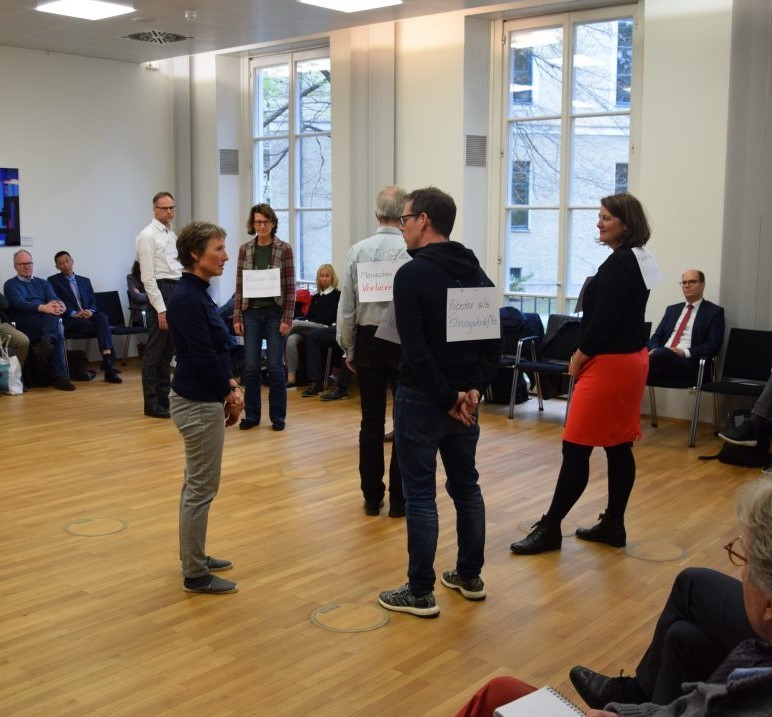
There were more than twenty “acatech am Dienstag” events in 2019, hosted both at the acatech FORUM in Munich and at local educational and scientific partner institutions in other Bavarian towns and cities. In addition to traditional dialogue formats such as short lectures and panel and plenary discussions, the events also made use of role plays and even magic tricks. An undoubted highlight was the light-hearted take on science and engineering provided at the “Derblecken” comedy event at the start of Bavaria’s “Starkbierzeit” strong beer festival.
acatech and the Academy for Civic Education Tutzing hosted a joint event on 24 September 2019 that included a panel discussion on “Education for a Shared Future” with Bavarian State Minister for Culture and Education, Michael Piazolo, Director of the Academy for Civic Education, Ursula Münch, acatech President Dieter Spath and Executive Board member Ortwin Renn. Based on the findings of the TechnikRadar survey and of previous discussions on topics such as nanotechnology, the participants discussed a range of issues including how to ensure that the public is involved in shaping technologies from an early stage.
“These days, many people find it almost impossible to tell the difference between fact and fiction.”
Ortwin Renn, acatech Executive Board member and Scientific Director at the Institute for Advanced Sustainability Studies (IASS).
On 18 October 2019, acatech and the Bavarian Academy of Sciences and Humanities hosted a parliamentary-style debate with the title “The mobility transition – how far are you prepared to go?”. The participants were asked a series of questions about mobility, with those who answered “yes” asked to sit on one side of the room and those who answered “no” on the other. Both sides then had the chance to explain their opinions and discuss them with the support of experts from the academies.
The parliamentary-style debate was one of a series of acatech events and publications on the future of mobility. A representative survey carried out by the Allensbach Institute on behalf of the Academy clearly showed that although environmentally- and climate-friendly mobility has become an extremely important issue in Germany, many people still rely on their cars due to the lack of equally good alternative mobility services in many parts of the country. To address this issue, acatech launched its target scenario for connected transport and traffic post-2030 at the IAA International Motor Show. The Academy also held a number of discussion events to promote public debate of these issues. As well as the parliamentary-style debate, these included an event in the “Münchner Klimaherbst” debate series and an “acatech am Dienstag” (acatech on Tuesday) event in Landshut where over a hundred guests took part in the discussion.
acatech was also involved through the Plattform Lernende Systeme in discussion events forming part of Germany’s Science Year 2019, which was devoted to the topic of artificial intelligence. For instance, the Academy was a partner of the nationwide “Wissenschaft Kontrovers” discussion series, which included an event in Garmisch-Partenkirchen called “My care robot and I”. acatech and the Plattform Lernende Systeme, which is coordinated by the Academy, supported several such public discussion events as part of the Science Year – Artificial intelligence.
With over thirty public discussion events in the past year, acatech has continued to strengthen its role in providing advice to the general public. The Academy is planning an extensive programme of further discussions for 2020 that will employ dialogue-based technology communication to actively engage members of the public in shaping the future by sharing their knowledge, values and interests.
Further information
News items
- Debatte über Roboter und Lernende Systeme in der Arbeit – acatech am Dienstag gastiert in Bamberg*
- Cybersicherheit und digitale Souveränität: Wenn die Interessen von Staat, Herstellern und Nutzern aufeinanderprallen*
- acatech am Dienstag: Was ist Licht? Ein Dialog um Beleuchtung, Energie und Kunst*
- Smarte Maschinen und Künstliche Intelligenz: Der Mensch muss gestalten*
- acatech am Dienstag: Experten plädieren für Technologieoffenheit in der Industriepolitik*
- acatech am Diensdog “sauba derbleckt!“*
- acatech am Dienstag: Aufstellung macht Emotionen beim Thema Künstliche Intelligenz sichtbar*
- Sustainable Smart Industry – Wie können wir Wertschöpfung nachhaltig betreiben?*
- Metalle für Zukunftstechnologien – wie decken wir zukünftig unseren Rohstoffbedarf?*
- Nachhaltige Mobilität durch synthetische Kraftstoffe?*
- Neue Möglichkeiten und ethische Grenzen der Gen-Schere CRISPR-Cas*
- Textiltechnik – was können die textilen Produkte der Zukunft?*
- Lichte Ideen zum Ferienbeginn: Schülerseminar und acatech am Dienstag zu Künstlicher Photosynthese*
- Öffentlicher Dialog in Landshut: Nachhaltige Mobilität in Stadt und Land*
- acatech am Dienstag: Volles Haus bei Diskussion über nachhaltige Mobilität in Landshut*
- acatech am Dienstag: Welche Gemeinsamkeiten verbinden Bauhaus und Synthetische Biologie?*
- acatech am Dienstag: Kann die Blockchain-Technologie demokratische Prozesse verbessern?*
- acatech am Dienstag: Kann Bioenergie das Klima retten?*
- Digitalisierte Düfte – eine inspirierende Vision*
- acatech am Dienstag: Umsteigen aber wie? – Mobilität in der Stadt von morgen*
- acatech am Dienstag: Diskriminierung durch Algorithmen – Die Ursache ist immer der Mensch*
- Wie lernende Systeme die Produktion effizienter machen
- Ist CRISPR das ultimative Tool?*
- Was soll Pflegerobotik leisten und wo braucht es den Menschen?*
- acatech am Dienstag: Potenziale der Quantentechnologien*
- acatech im Bayerischen Landtag: Cyber Security – Wie wird der bayerische Mittelstand sicherer?*
- acatech am Morgen: Präsidiumsmitglied Ortwin Renn diskutiert mit bayerischen Abgeordneten die Ergebnisse des TechnikRadar*
* Content only available in German.
Academy
Organisation
Members
acatech’s Members are leading experts from the fields of engineering, the applied sciences, the humanities, economics and the social sciences. They are invited to join the Academy on the basis of their outstanding scientific achievements and excellent reputation. acatech had a total of 572 Members as of December 2019. This included 40 newly-elected experts from the fields of engineering, the natural sciences, the humanities, economics and the social sciences. In the acatech topic networks, the Academy’s Members collaborate on technical issues relating to the technological sciences and more general technology policy questions. At this year’s Academy Day, they discussed the opportunities offered by biotechnology with representatives of government and industry.
New ordinary acatech Members in 2019
- Prof. Dr.-Ing. Wilhelm Bauer
- Prof. Dr. Reiner Braun
- Prof. Dr.-Ing. Uwe Clausen
- Prof. Dr.-Ing. Manfred Curbach
- Prof. Dr.-Ing. habil. Falko Dressler
- Prof. Dr.-Ing. Alexander Fay
- Prof. Anja Feldmann Ph.D.
- Prof. Dr. Frank Gauterin
- Prof. Dr. Peter Gumbsch
- Prof. Dr. Jens Gutzmer
- Prof. Dr. Rainer Haag
- Prof. Dr.-Ing. Sami Haddadin
- Prof. Dr. Andrea Hampel
- Prof. Dr. Dr. Eric Hilgendorf
- Univ.Doz. Dipl.-Ing. Dr. techn. DDr. med. Ingeborg Hochmair
- Prof. Dr. med. Stefan Jockenhövel
- Prof. Dr. Sebastian Lehnhoff
- Prof. Dr. Barbara Lenz
- Prof. Dr. Andreas Liese
- Prof. Dr.-Ing. Vera Meyer
- Prof. Dr. Jürgen Popp
- Prof. Dr. Katja Schenke-Layland
- Prof. Dr. Sabine Schlacke
- Prof. Dr. Mike Schlaich
- Prof. Dr.-Ing. Wilfried Sihn
- Prof. Dr.-Ing. Gernot Spiegelberg
- Prof. Dr. Helmuth Trischler
- Prof. Dr.-Ing. Jörg Wallaschek
- Prof. Dr.-Ing. Sandro Wartzack
- Prof. Dr. Carsten Werner
- Prof. Dr. Johannes Weyer
- Prof. Dr.-Ing. Thomas Zwick
New associate Members in 2019
- Prof. Dr.-Ing. Wolfgang Bleck
- Dr.-Ing. Ömer Sahin Ganiyusufoglu
- Prof. Dr.-Ing. Helmut Holzapfel
- Prof. Dr. Helmut Krcmar
- Prof. Dr. Xianzhiang Lei
- Prof. Dr. Don A. Lucca
- Prof. Dr. Heiner Monheim
- Prof. Dr. Hoàng Xuân Phú
acatech Members who passed away
- Prof. Dr.-Ing. Berthold Bosch
- Prof. Dr.-Ing. Manfred Depenbrock
- Prof. Dr.-Ing. Ernst-Dieter Gilles
- Prof. Dr.-Ing. Hans-Jürgen Haubrich
- Prof. Dr.-Ing. Eicke Lehmann
- Prof. Dr. Peter Starke
- Prof. Dr.-Ing. Rolf Thiele
- Prof. Dr.-Ing. Hans-Peter Wiendahl
Senate
acatech’s Senate forms the second pillar of the Academy, alongside the Members. The Senate includes members of technology companies, associations, societies and government, as well as the presidents of the major science organisations. The members of the Senate advise the Academy on strategic issues and channel proposals from industry.
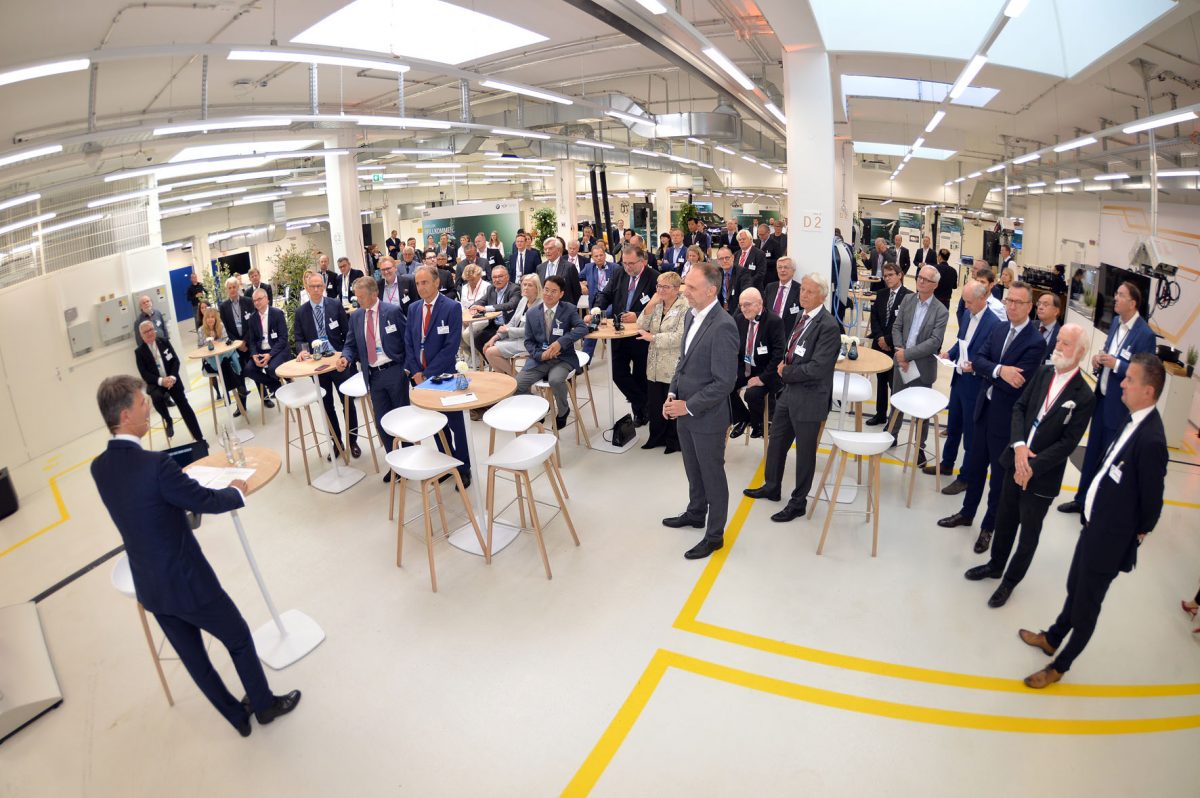
New members of the acatech Senate are elected by its existing members following their nomination by the Executive Board. As of December 2019, acatech’s Senate comprised more than 100 prominent figures from industry, associations, societies, government and science organisations. This figure includes the 13 new members minus the 6 members who left the Senate. At the annual meeting of the Senate, its members discussed an AI strategy for Germany.
New Senate members in 2019
- Ralf Dieter, Dürr AG
- Dr. Ulrich Störk, PricewaterhouseCoopers GmbH
- Christoph Winterhalter, DIN Deutsches Institut für Normierung e.V.
- Prof. Dr. Sompo Chou, Sino-German Hi Tech Park GmbH
- Dr. Bernd Montag, Siemens Healthineers AG
- Robert Mayr, Datev eG
- Dr. Thomas Jetter, Digitalplus Partners
- Maximilian Viessman, Viessmann Werke
- Birgit Priemer, AutoMotorSport
- Prof. Dr. Antonio Krüger, Deutsches Forschunszentrum für Künstliche Intelligenz GmbH
- Dr. Ulrich Eichhorn, IAV Ingenieurgesellschaft Auto und Verkehr GmbH
- Prof. Dr. Thomas Hofmann, Technische Universität München
- Prof. Dr. Katja Becker, Deutsche Forschungsgemeinschaft e.V.
Members who left the Senate in 2019
- Dr. Martin Herrenknecht,
- Bruno Ladaude-Grave
- Dr. Thomas Langner
- Dr. Herbert Müller
- Prof. Dr. Wolfgang Herrmann
- Prof. Dr. Peter Strohschneider
Executive Board and Management Board
acatech’s Executive Board is responsible for the Academy’s strategic management and for representing it externally. Its members are elected from the members of the General Assembly and the Senate, ensuring that the Executive Board represents both pillars of the Academy. The Executive Board includes acatech’s Presidents and Vice-Presidents, as well as its Managing Director and the scientific President’s representative, both of whom serve as non-voting members. In 2018, Karl-Heinz Streibich took up his position as one of acatech’s two Presidents, alongside Dieter Spath. One new member joined acatech’s Executive Board in 2019, bringing the total number of members to 19 (17 of whom are voting members) as of 31.12.2019. The Academy’s Management Board is made up of the Executive Board members responsible for acatech’s operational management and comprises the Presidents, Vice-Presidents, Managing Director and scientific President’s representative.
New Executive Board members in 2019
- Dr. Stefan Oschmann, Merck KGaA
Board of Trustees
The acatech Board of Trustees comprises prominent figures from academia, industry, government and civil society. Chaired by Henning Kagermann, it helps the Management Board to determine the Academy’s strategic direction. The acatech Board of Trustees meets at least once a year. In 2019 it had 18 members.
New members of the Board of Trustees in 2019
- Prof. Dr. Dietmar Harhoff, Max-Planck-Institut für Innovation und Wettbewerb
- Prof. Dr. Wolfgang Herrmann
Secretariat
The acatech Secretariat in Munich is the Academy’s headquarters. It is home to the Academy’s senior management and the majority of its staff in the support, organisation and administration functions, as well as those responsible for specific priority themes. acatech has two offices in Berlin: its main Berlin office and an ESYS project office. The acatech office in Brussels coordinates the Academy’s networking activities at EU level. In 2019, a total of 110 members of staff were employed at acatech’s offices, approximately 65 percent of whom were women. During this period the Academy was also supported by 35 student assistants and one trainee.
Finances
acatech is a non-profit organisation. Its institutional funding is shared equally between the Federal Government and the Länder. This is supplemented by public and private project funding.

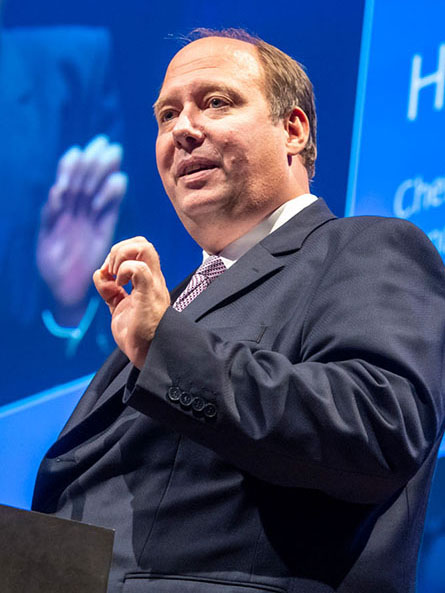
“Current technological advances offer huge opportunities for adding new value in industry, for increased mobility and for a more sustainable future. We must shape this transformation together, with ingenuity, by embracing the future, and through a close dialogue between science, industry, government and civil society. acatech plays an important role in this context.”
Helge Braun, Head of the Federal Chancellery and Federal Minister for Special Tasks, at acatech’s 2019 Annual Meeting
Förderverein
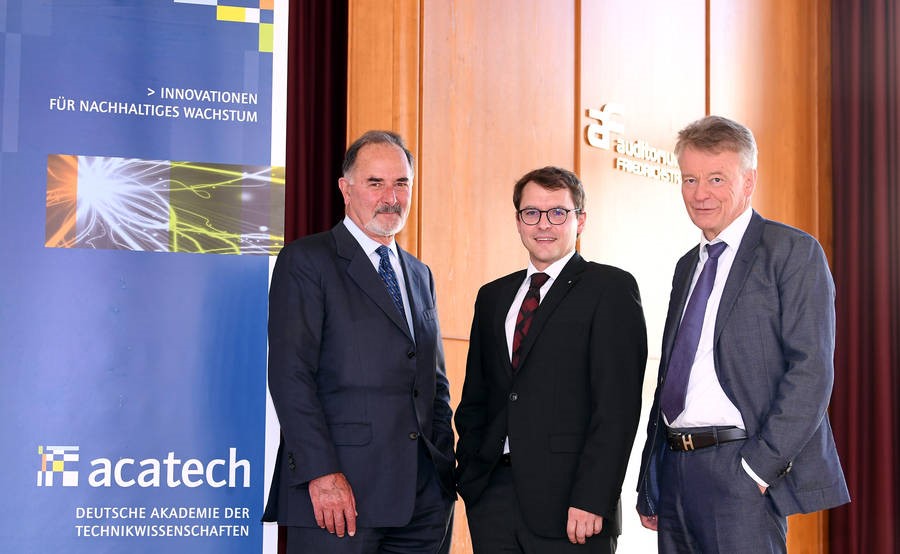
The acatech Förderverein was established in order to raise funds for the Academy. We would like to thank our funders for their generous contributions which play a large part in enabling and supporting acatech’s work.
Board of the Förderverein
- Dr.-Ing. E. h. Bernd Pischetsrieder, Chairman of the Board
- Prof. Dr. Hermann Requardt, Deputy Chairman of the Board
- Manfred Rauhmeier, acatech Managing Director, Board member and Secretary of the Förderverein
Private donations (Förderverein)
Contributions from Förderverein members
- ABB AG
- Accenture GmbH
- Airbus Group
- Alfred Kärcher GmbH & Co. KG
- Allianz SE
- Atos IT Solutions and Services GmbH
- BASF SE
- Bayer AG
- Beckhoff Automation GmbH & Co. KG
- BMW AG
- Brose Fahrzeugteile GmbH & Co. KG
- Bruker Physik GmbH
- BSH Hausgeräte GmbH
- Carl Zeiss AG
- Clariant AG
- Daimler AG
- Dassault Systemes Deutschland GmbH
- Datev eG
- Deutsche Börse AG
- Deutsche Post AG
- Deutsche Telekom AG
- Digitalplus GmbH
- DIN Deutsches Institut für Normung e.V.
- Duisburger Hafen AG
- Dürr AG
- ESG Elektroniksystem- und Logistik-GmbH
- ExxonMobil Central Europe Holding GmbH
- Friedhelm Loh Stiftung
- Google Germany GmbH
- Harting Stiftung & Co. KG
- Hitachi Europe Ltd.
- HUAWEI Technologies Duesseldorf GmbH
- IBM Deutschland GmbH
- Infineon Technologies AG
- innogy SE
- Jacobs Stiftung
- Jopp GmbH
- K + S AG
- Klöckner & Co SE
- Lanxess AG
- Linde AG
- Merck KGaA
- MHP Management- und IT-Beratung GmbH
- Muhr und Bender KG
- Münchener Rückversicherungs-Gesellschaft
- Otto Fuchs KG
- PSI Software AG
- PricewaterhouseCoopers GmbH
- Robert Bosch GmbH
- SAP SE
- SEW-EURODRIVE GmbH & Co KG
- Sick AG
- Siemens AG
- Siemens Healthcare GmbH
- Sino German Hi Tech Park Holding GmbH + Co. KG
- Software AG
- Stahlinstitut VDEh
- Stifterverband für die Deutsche Wissenschaft e.V.
- TRUMPF GmbH + Co. KG
- TÜV Rheinland Berlin Brandenburg Pfalz e.V.
- TÜV SÜD AG
- UNITY AG
- Volkswagen AG
- WAGO Kontakttechnik GmbH & Co. KG
- Weidmüller Interface GmbH & Co. KG
- Wittenstein SE
Private project donations
- ALPLA Werke Alwin Lehner GmbH & Co KG
- Bayer AG
- Beiersdorf AG
- Bertelsmann SE & Co. KGaA
- BMW AG
- Bundesverband der Deutschen Industrie e.V.
- Climate Foundation
- Covestro Deutschland AG
- Deutsche Bahn AG
- Deutsche Lufthansa AG
- Deutsche Post DHL
- Deutsche Telekom AG
- E.ON AG
- ESMT European School of Management and Technology GmbH
- Henkel AG & Co. KGaA
- HERE Deutschland GmbH
- Hochland Deutschland GmbH
- innogy SE
- Interseroh Dienstleistungs GmbH
- Jacobs, Joh. Christian
- Körber-Stiftung
- Münchener Rückversicherungs-Gesellschaft
- Otto GmbH & Co. KG
- Reverse Logistics GmbH
- Robert Bosch GmbH
- SAP SE
- Schwarz Zentrale Dienste KG
- Siegwerk Druckfarben AG & Co. KGaA
- Siemens AG
- Siemens Healthcare GmbH
- SMS GmbH
- Stiftung Mercator GmbH
- Umicore AG & Co. KG
Payments in kind
- Deutsche Lufthansa AG
- Deutsche Telekom AG

